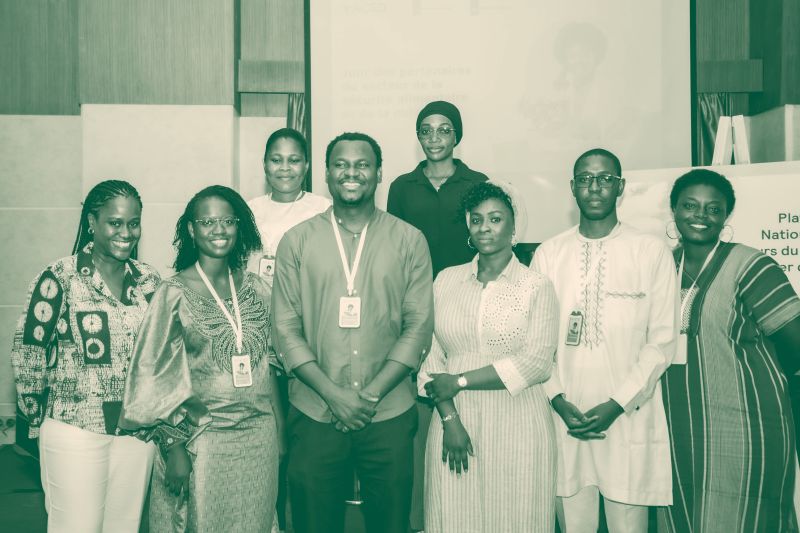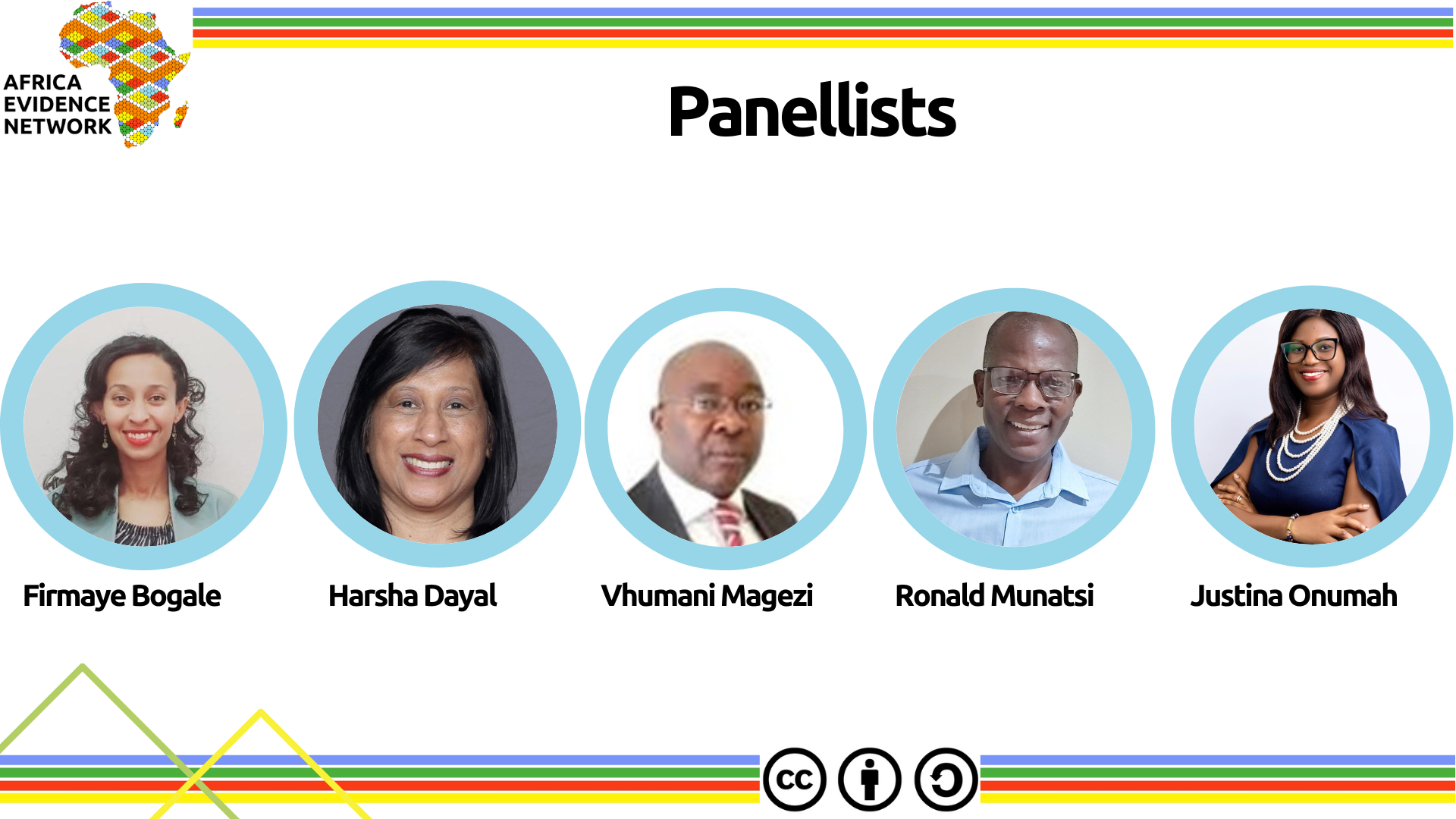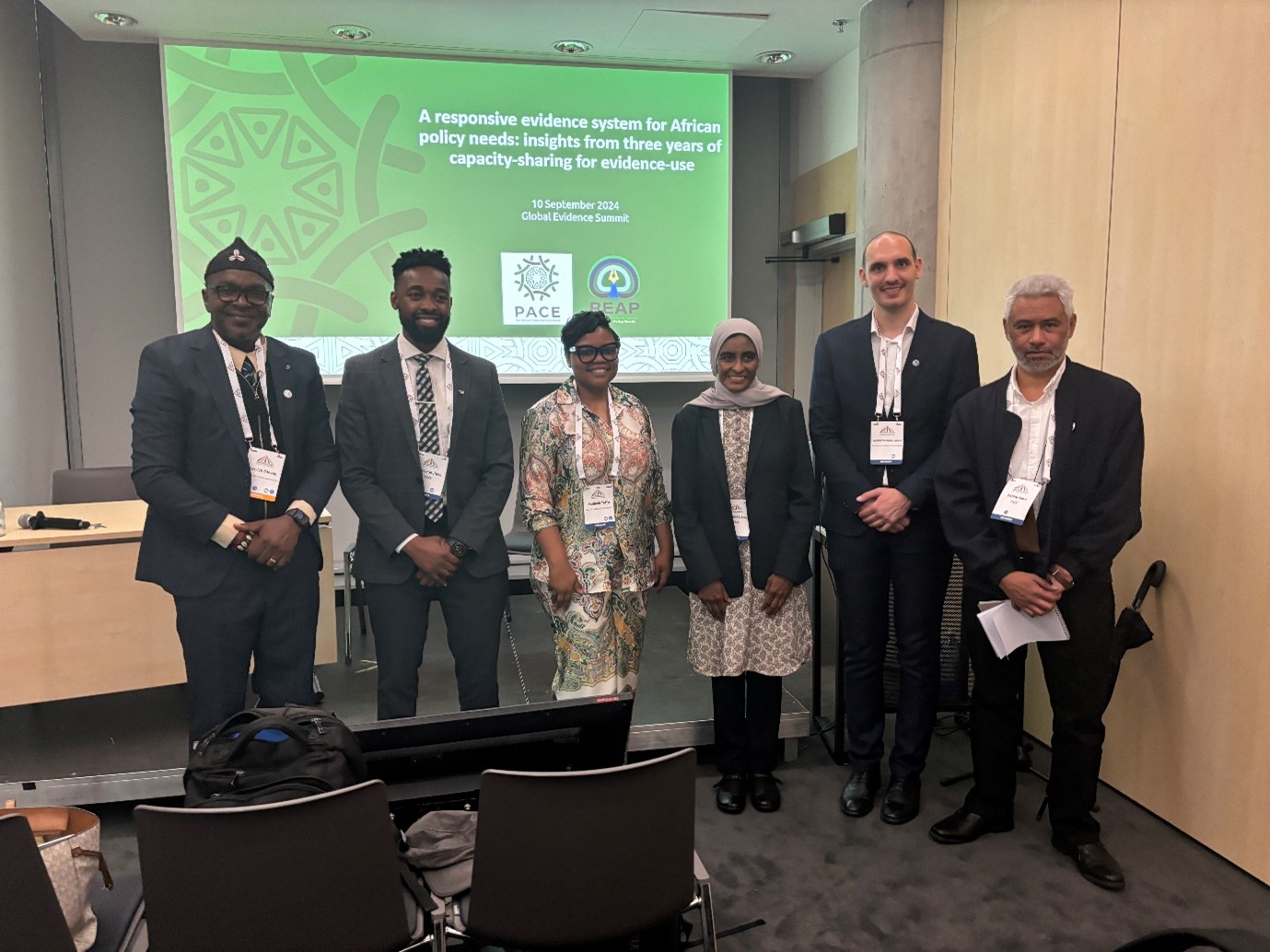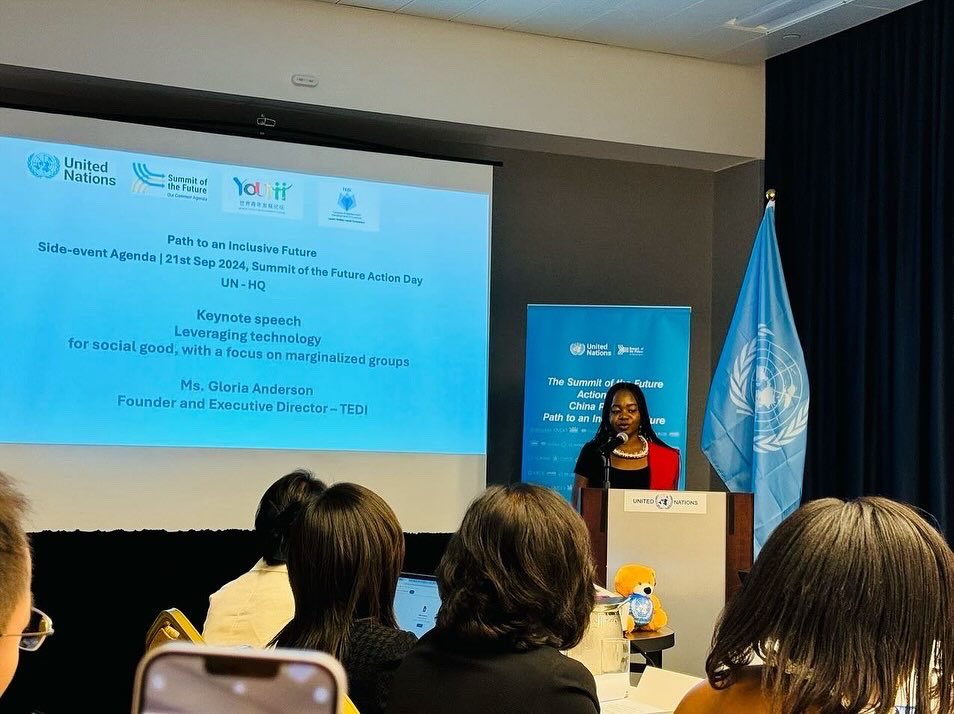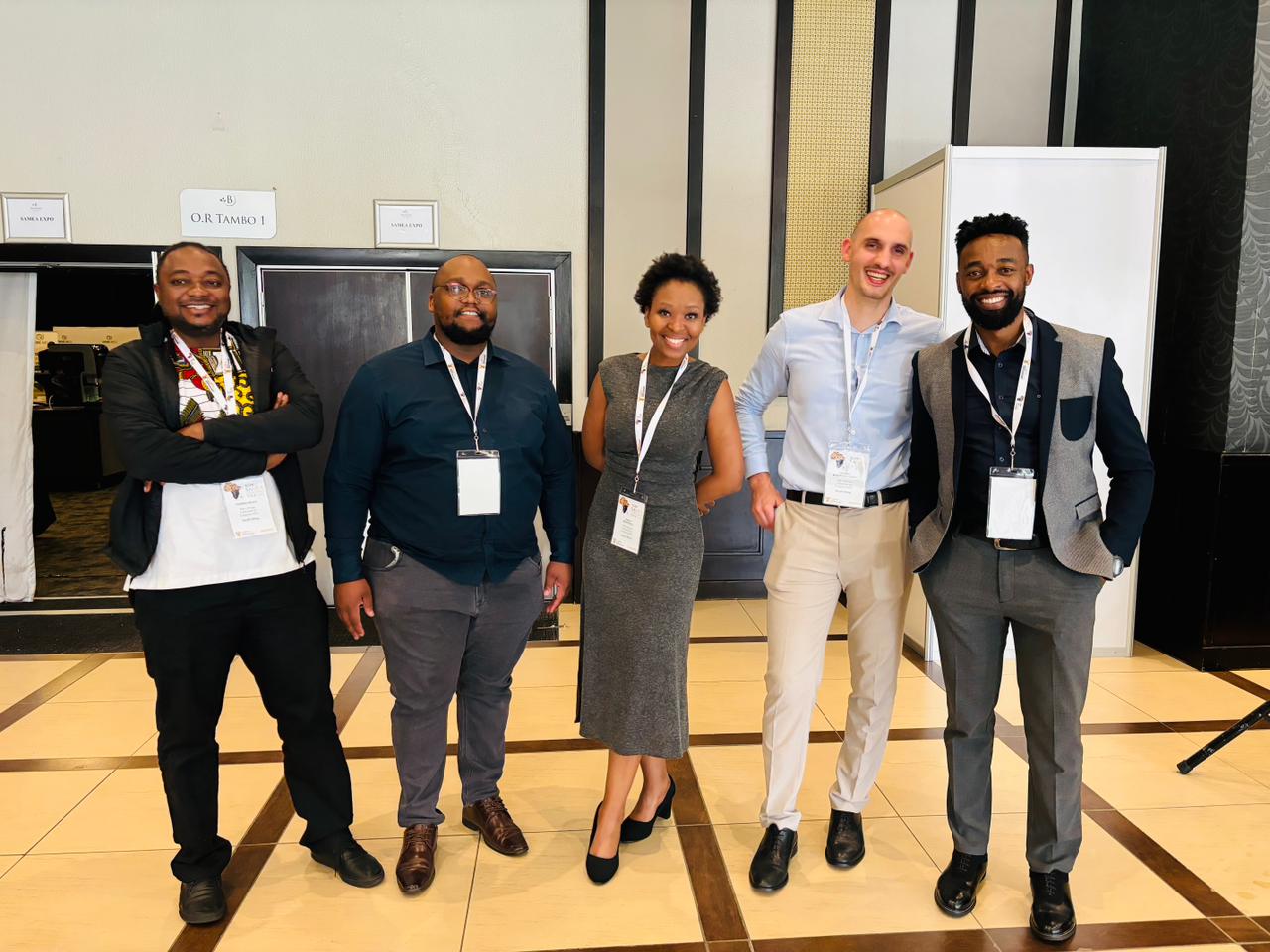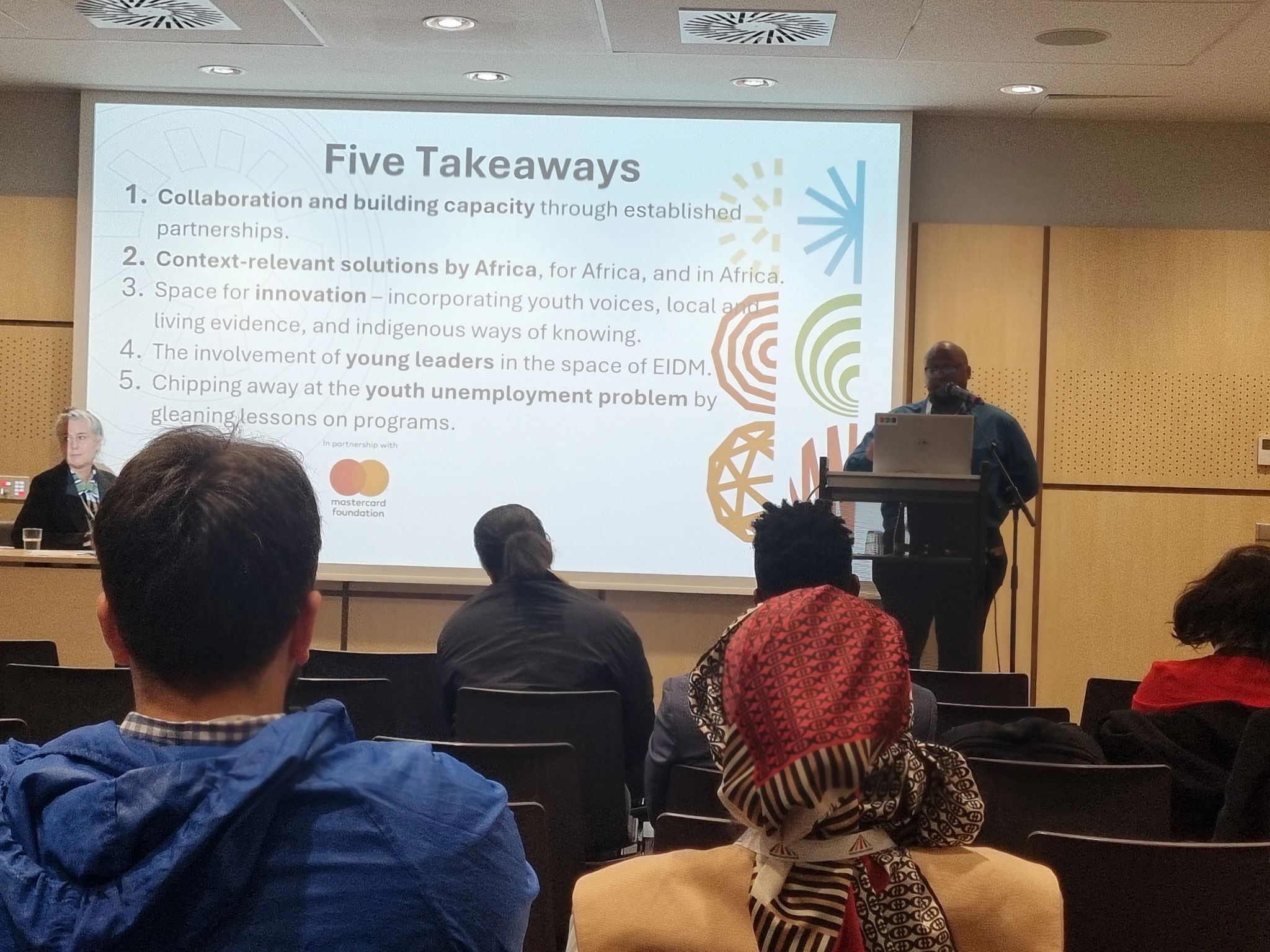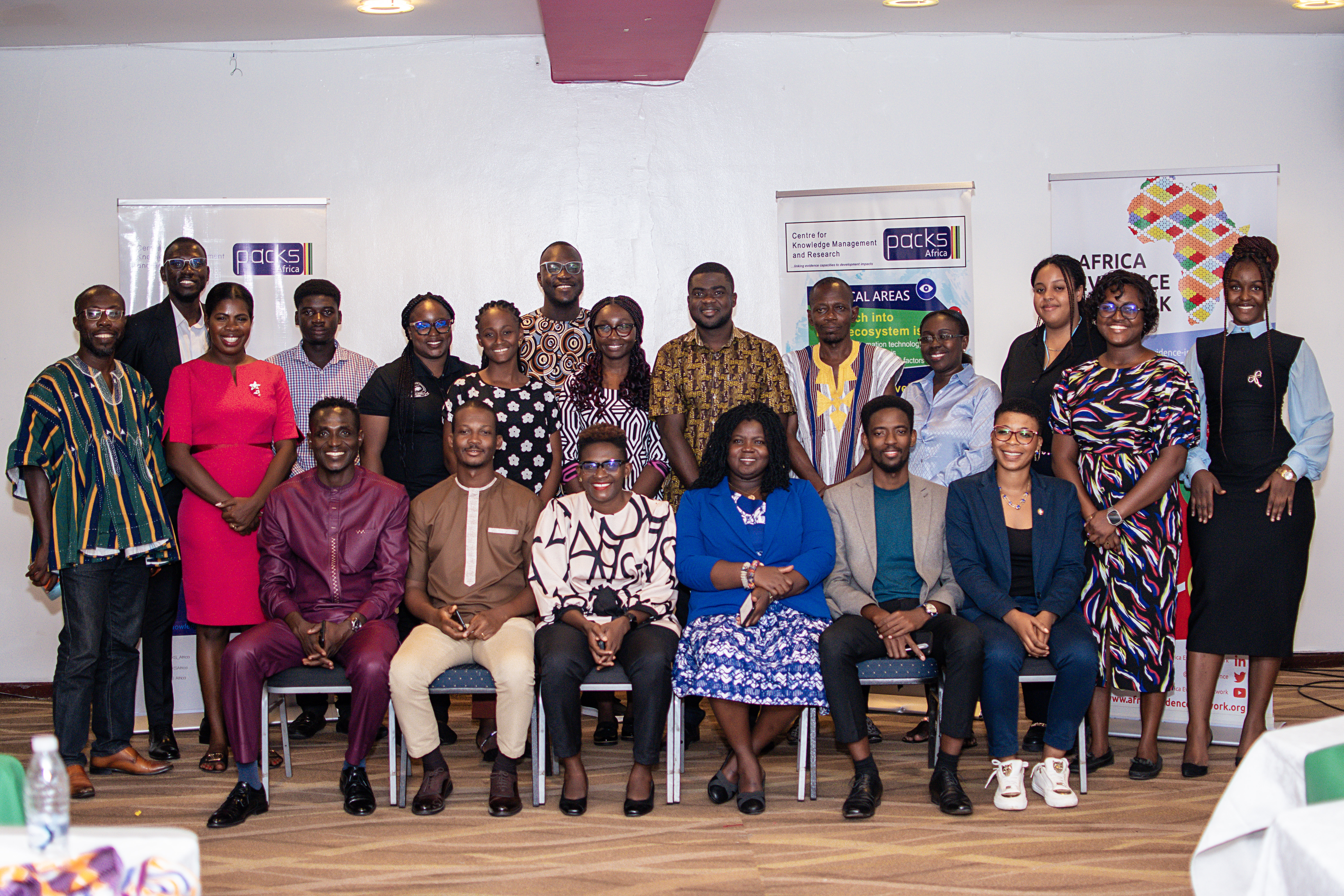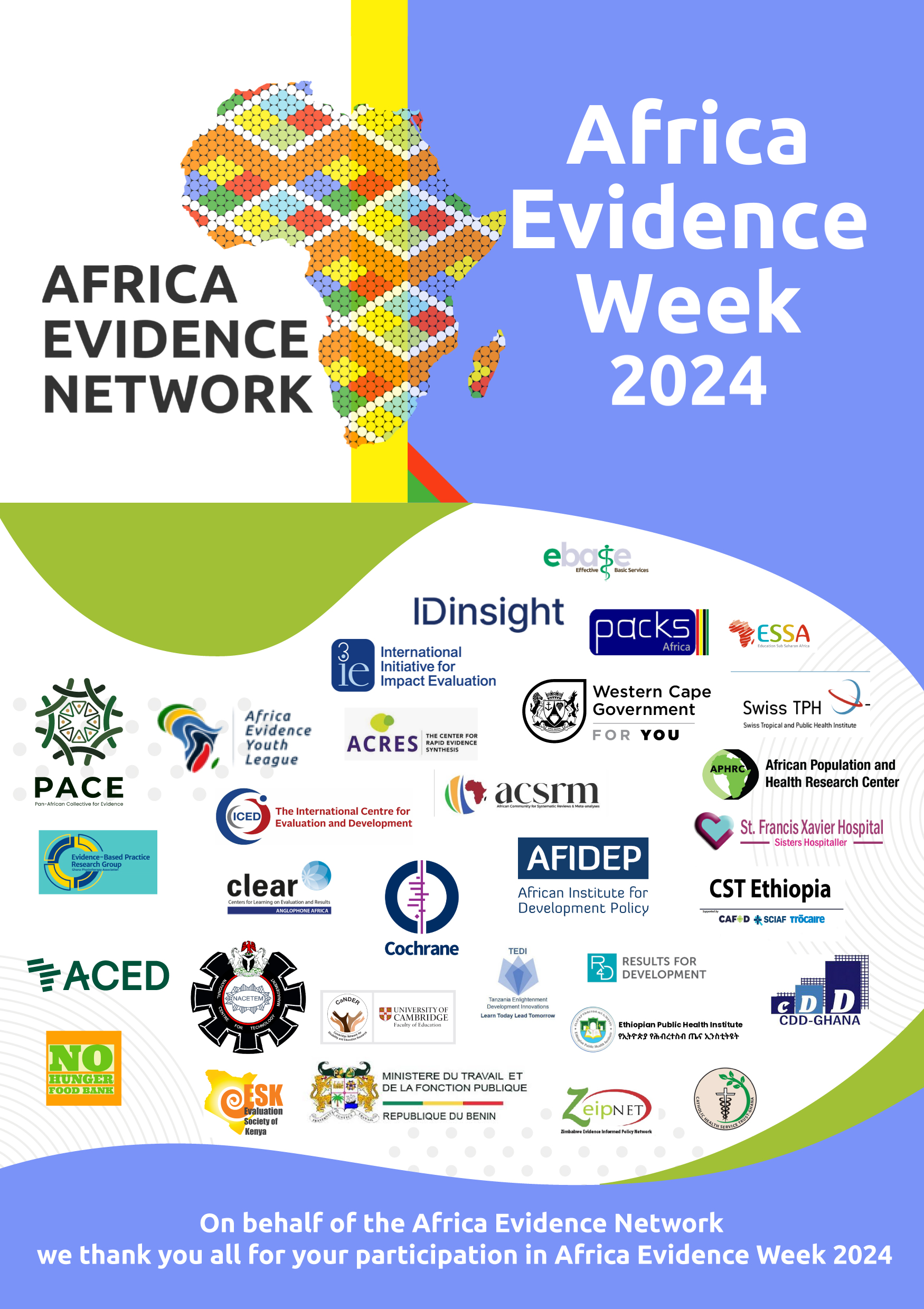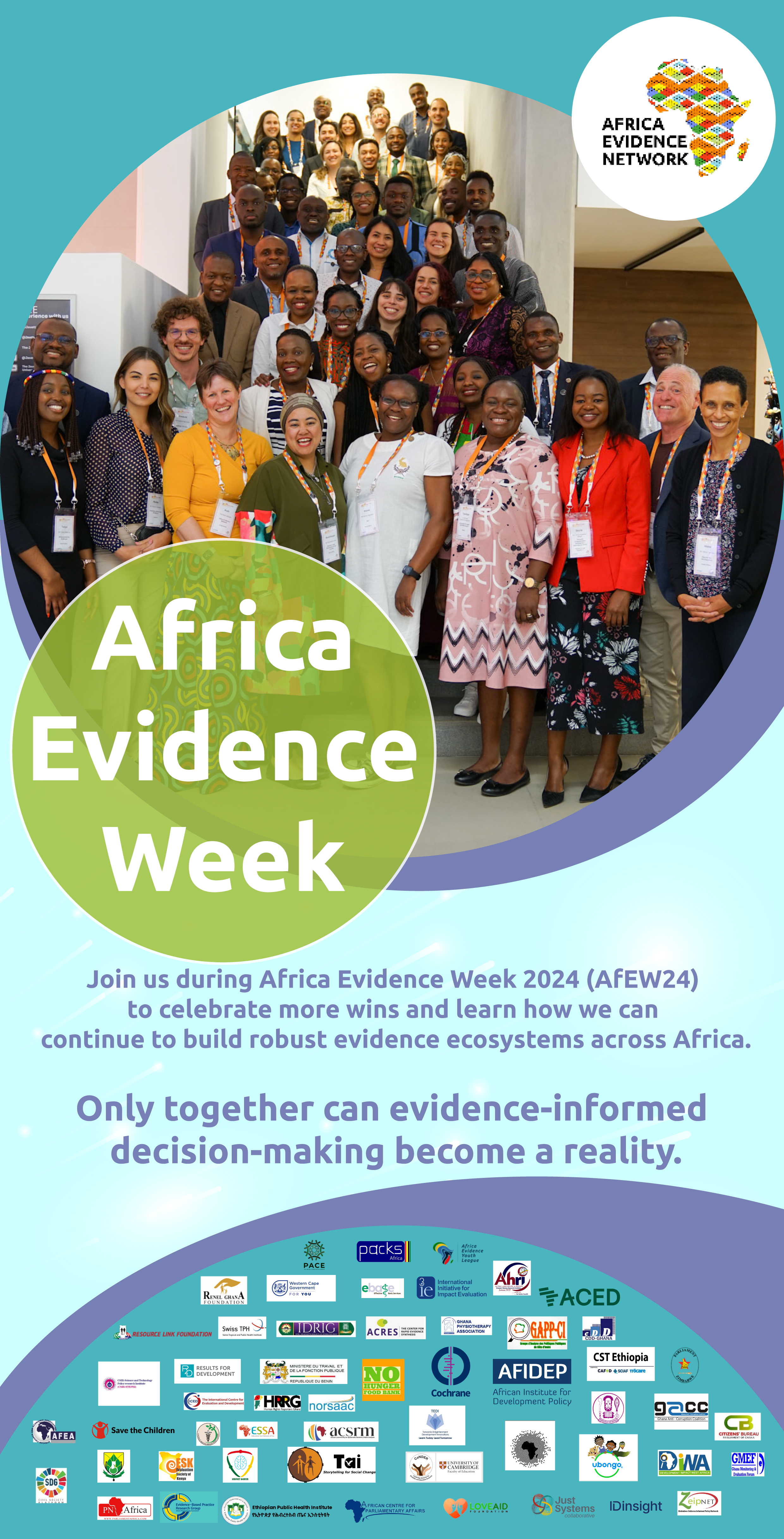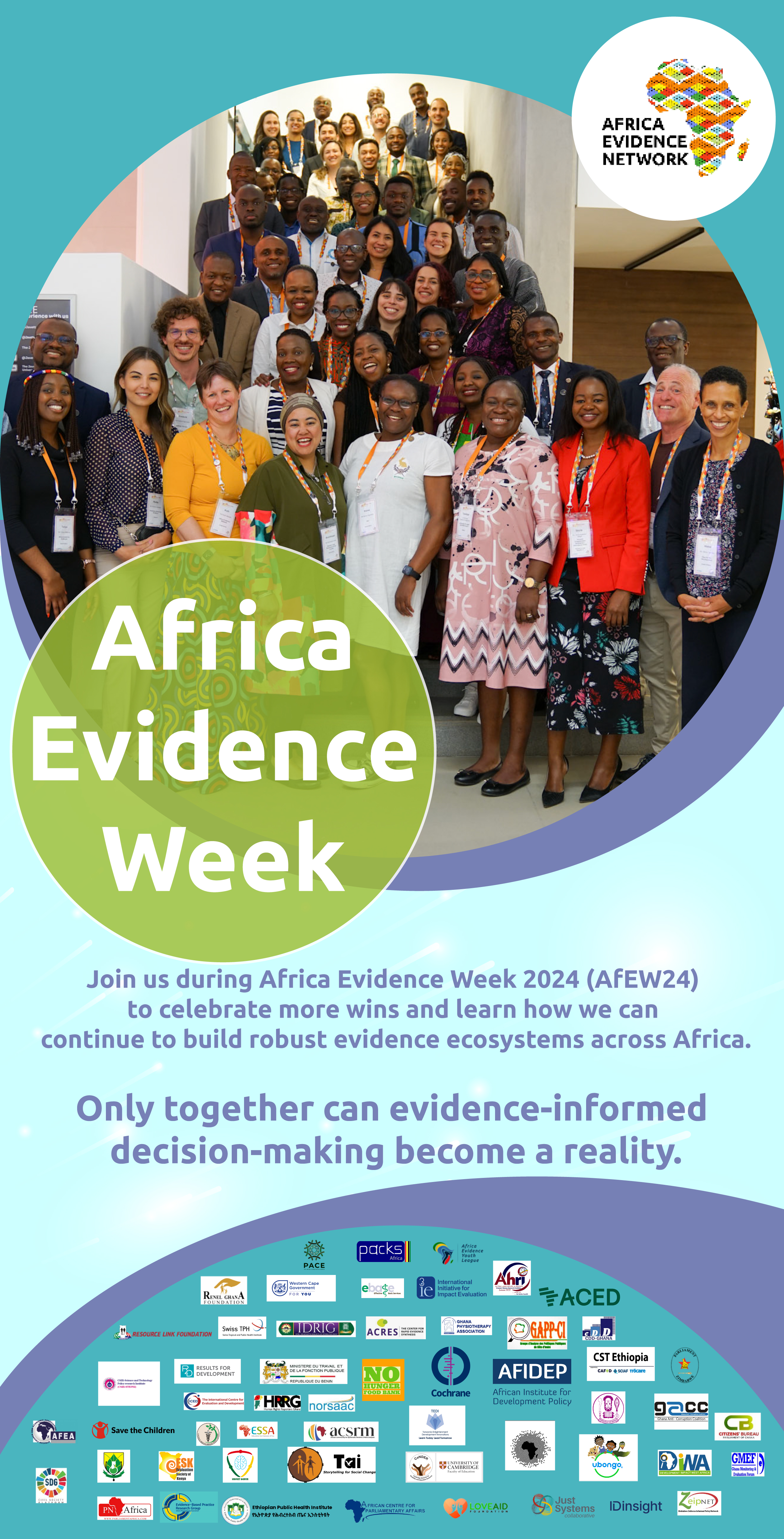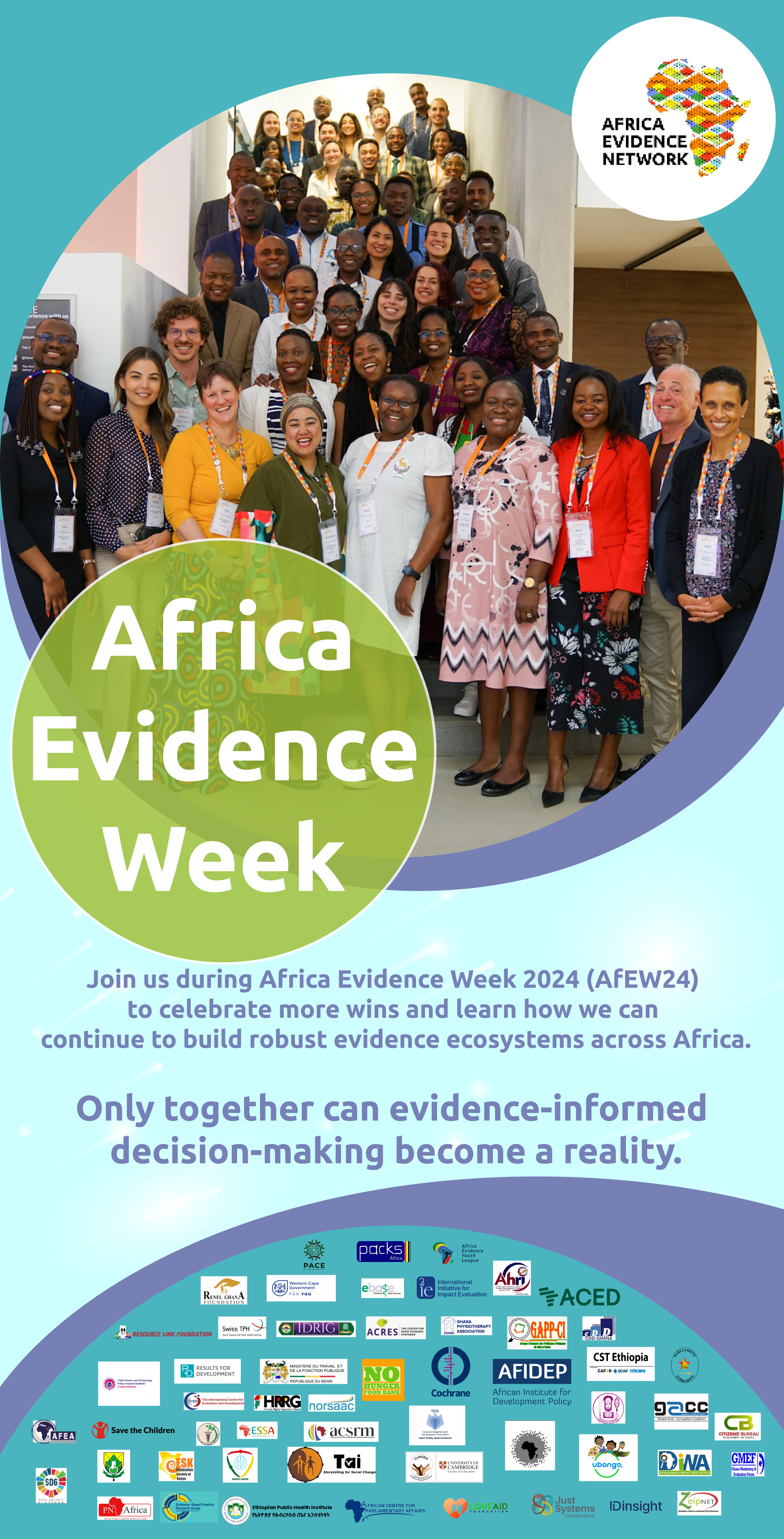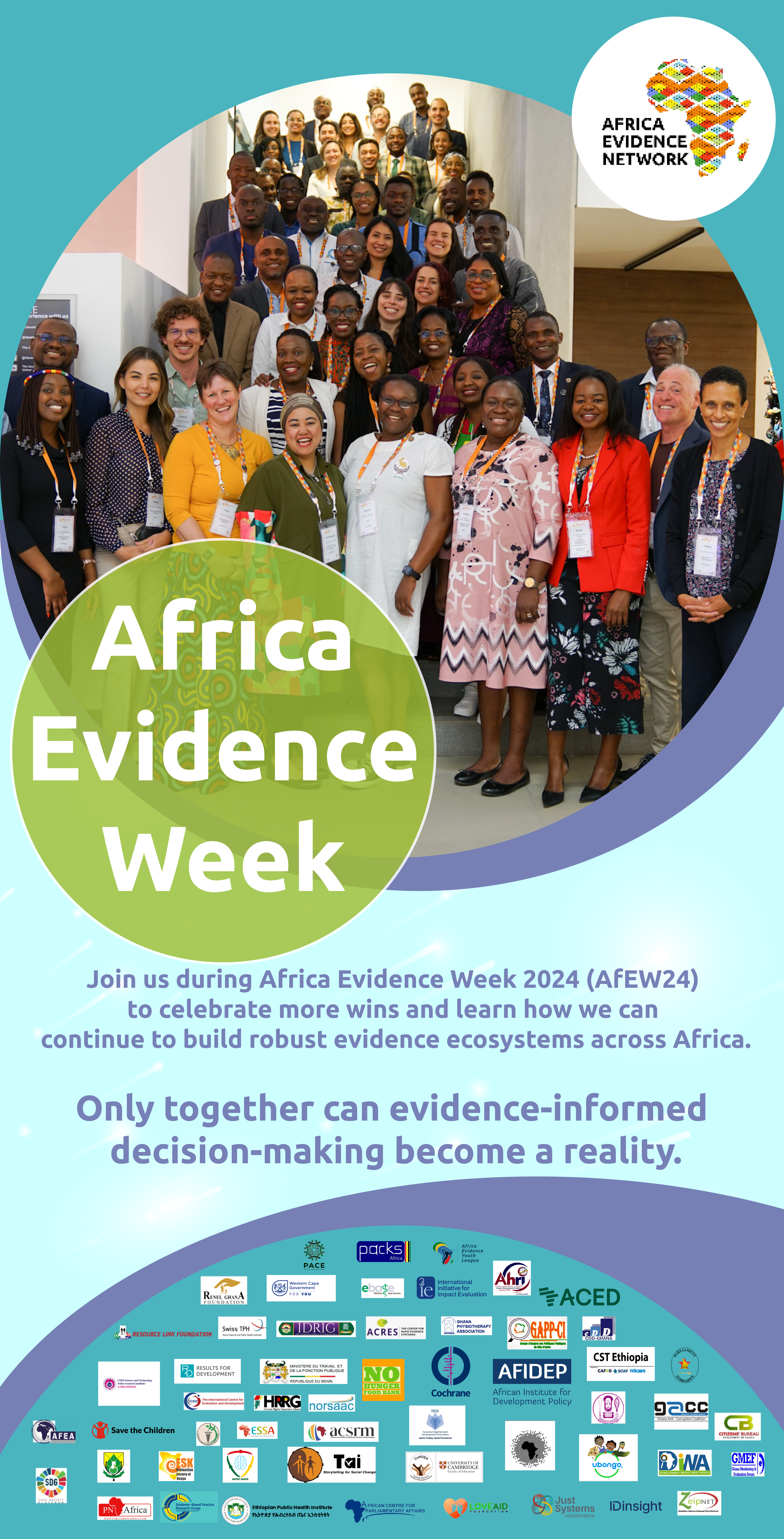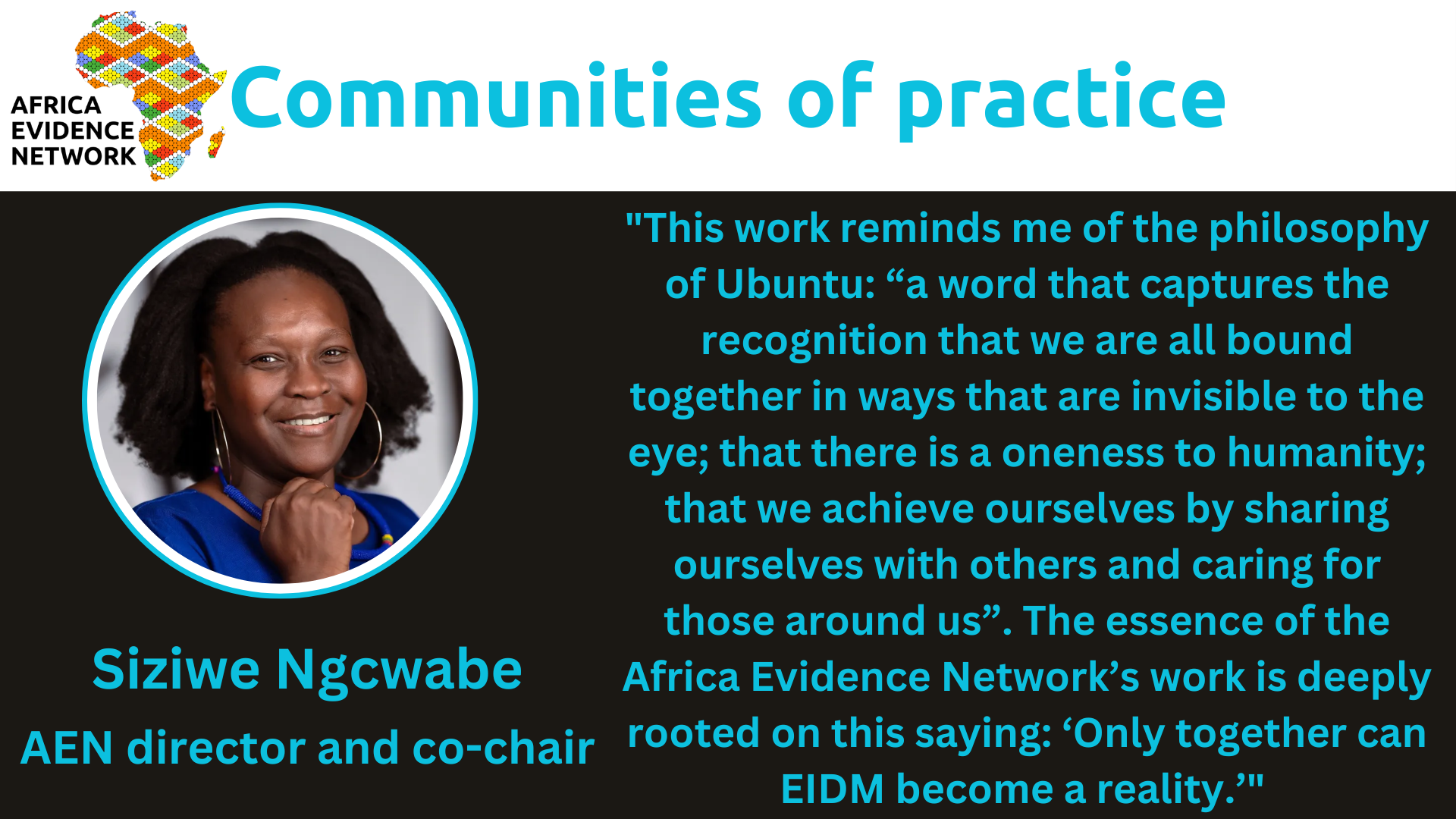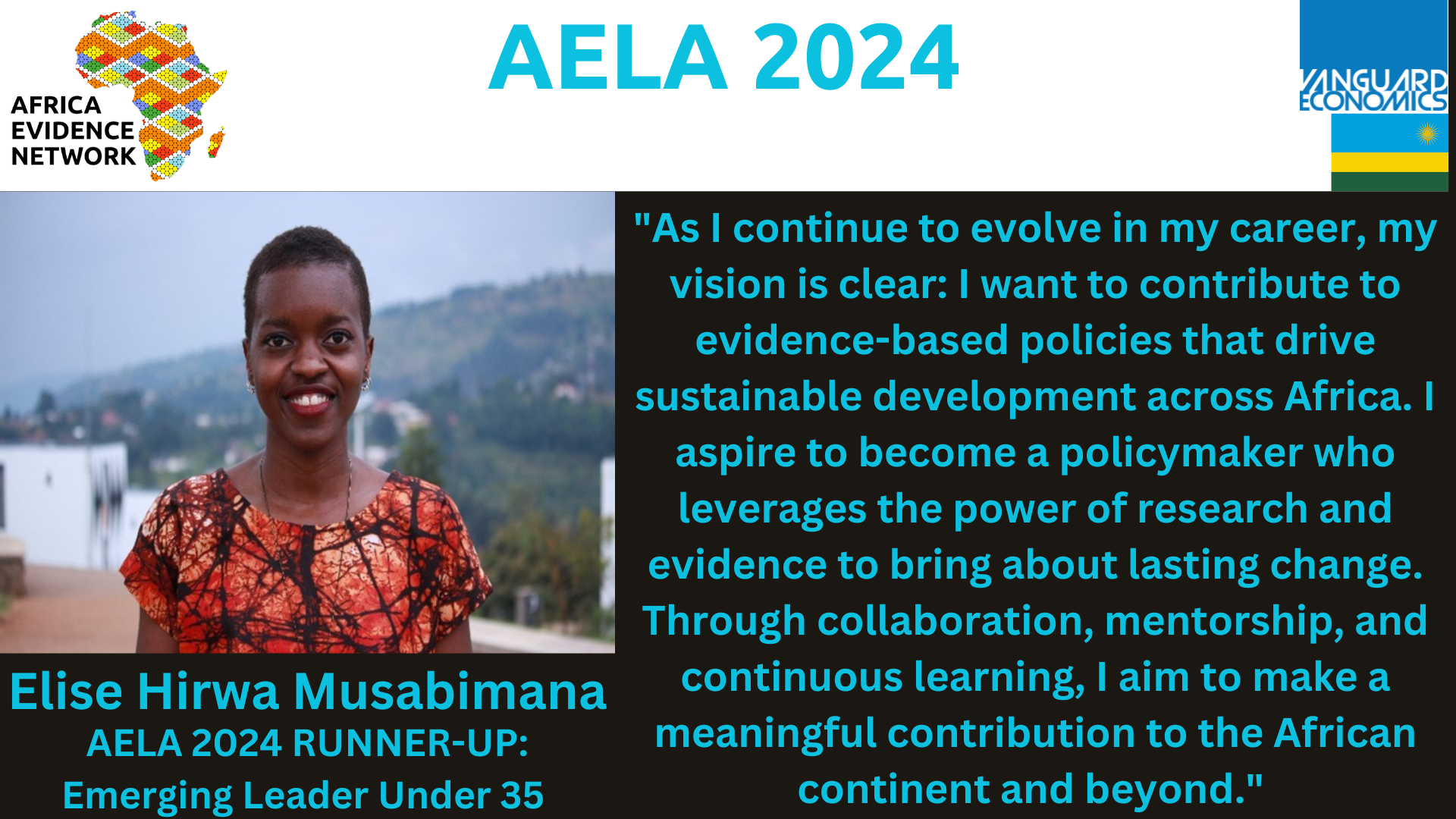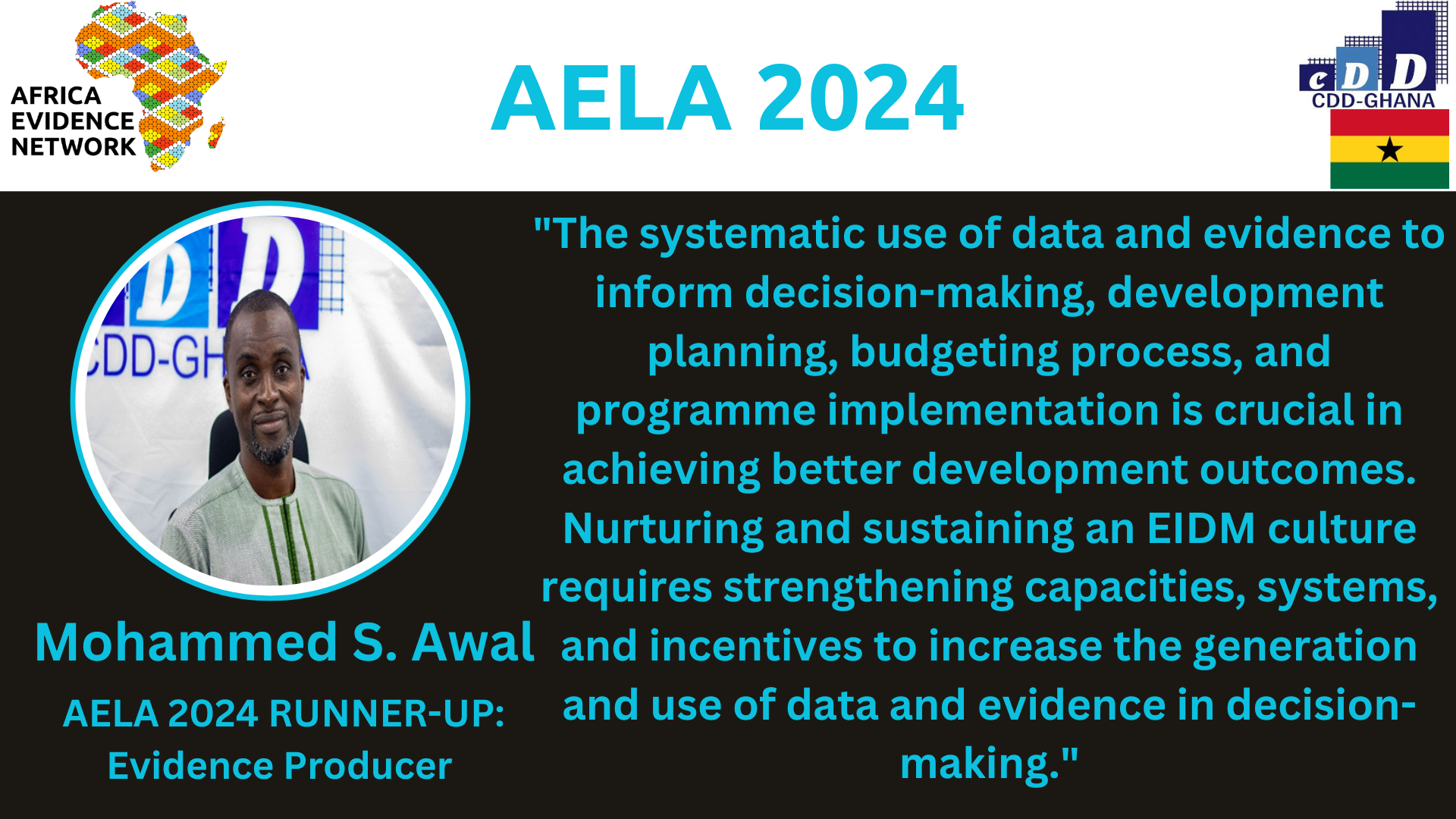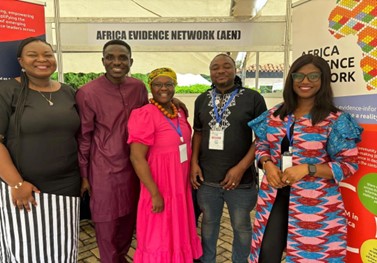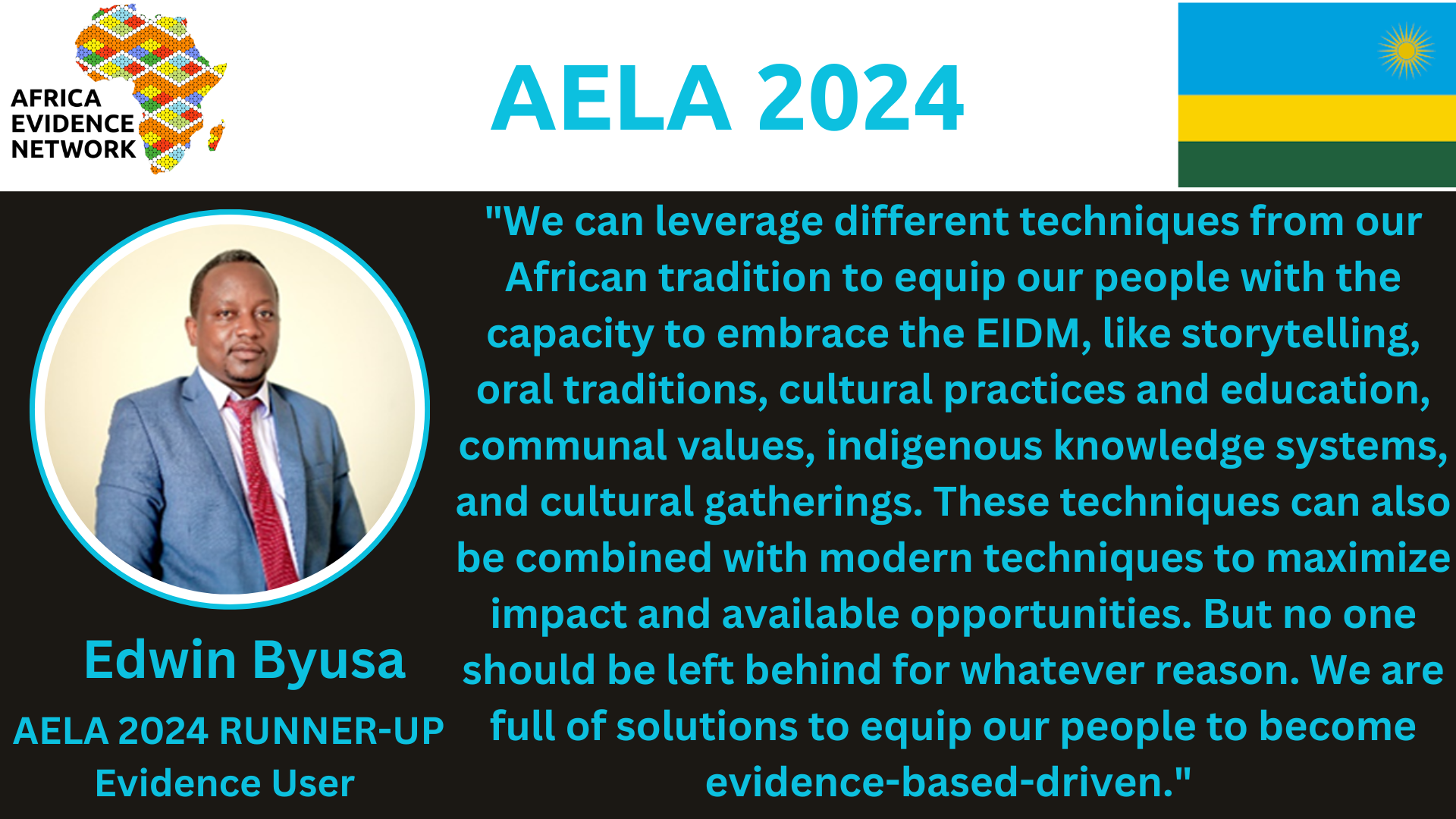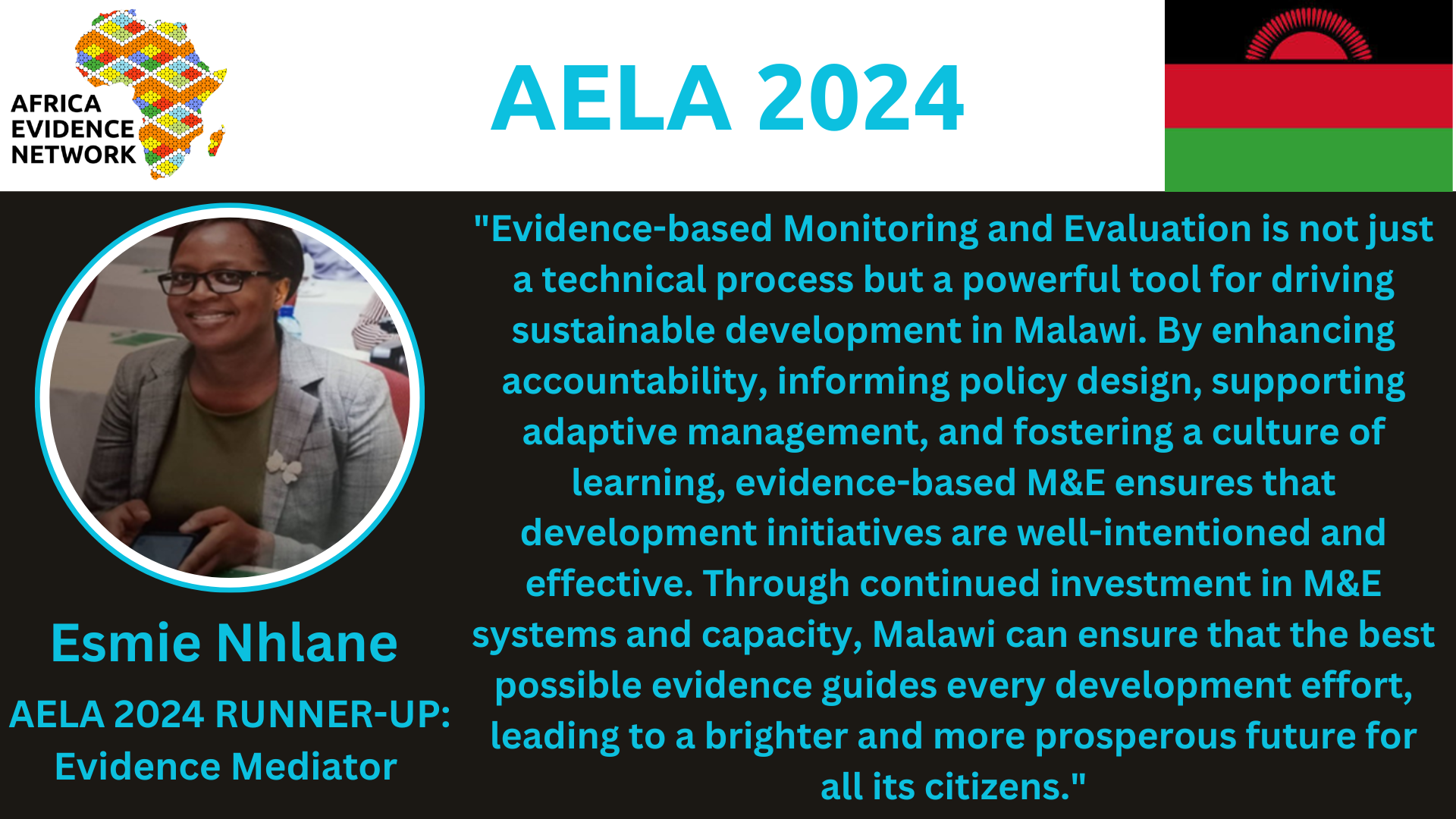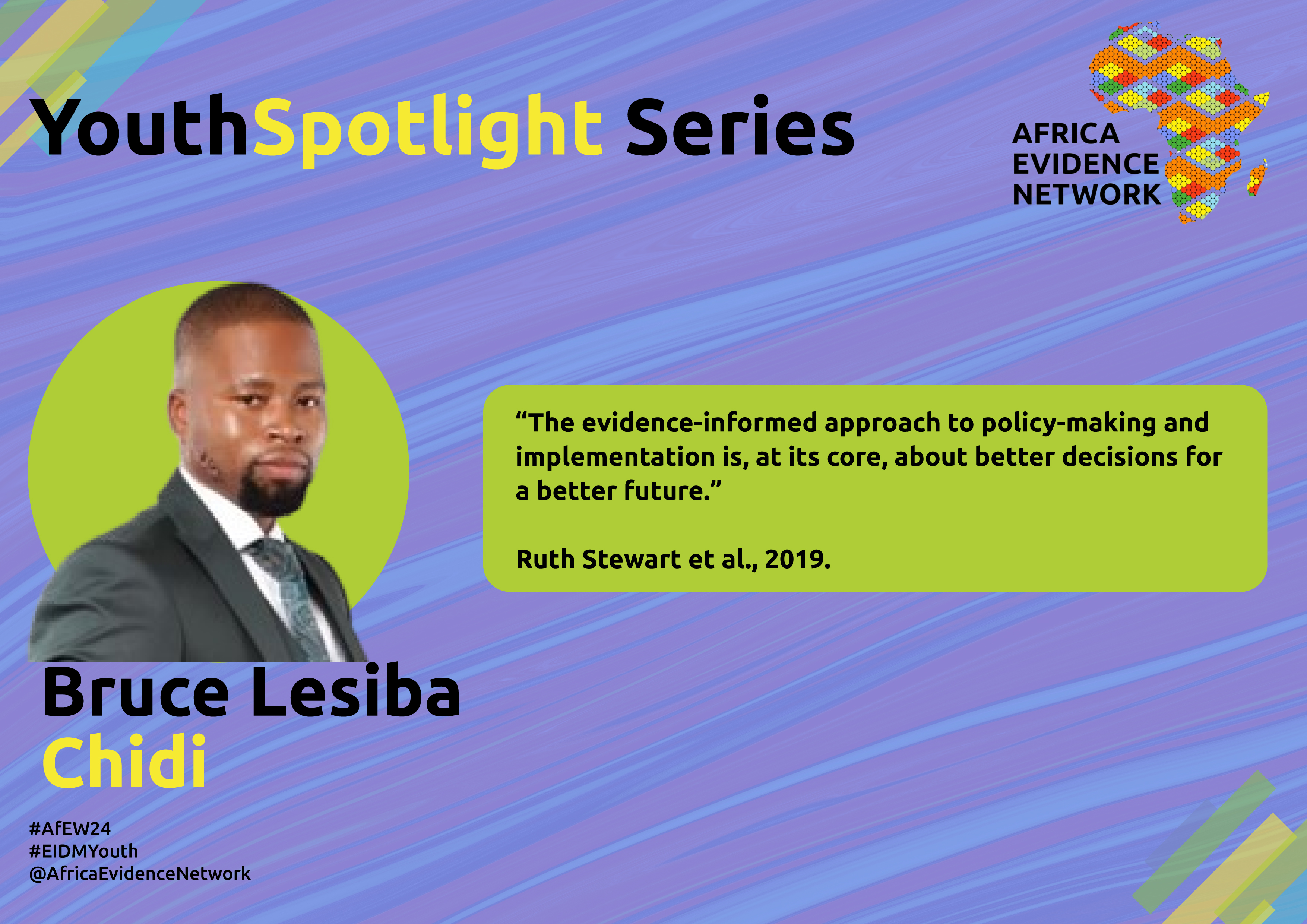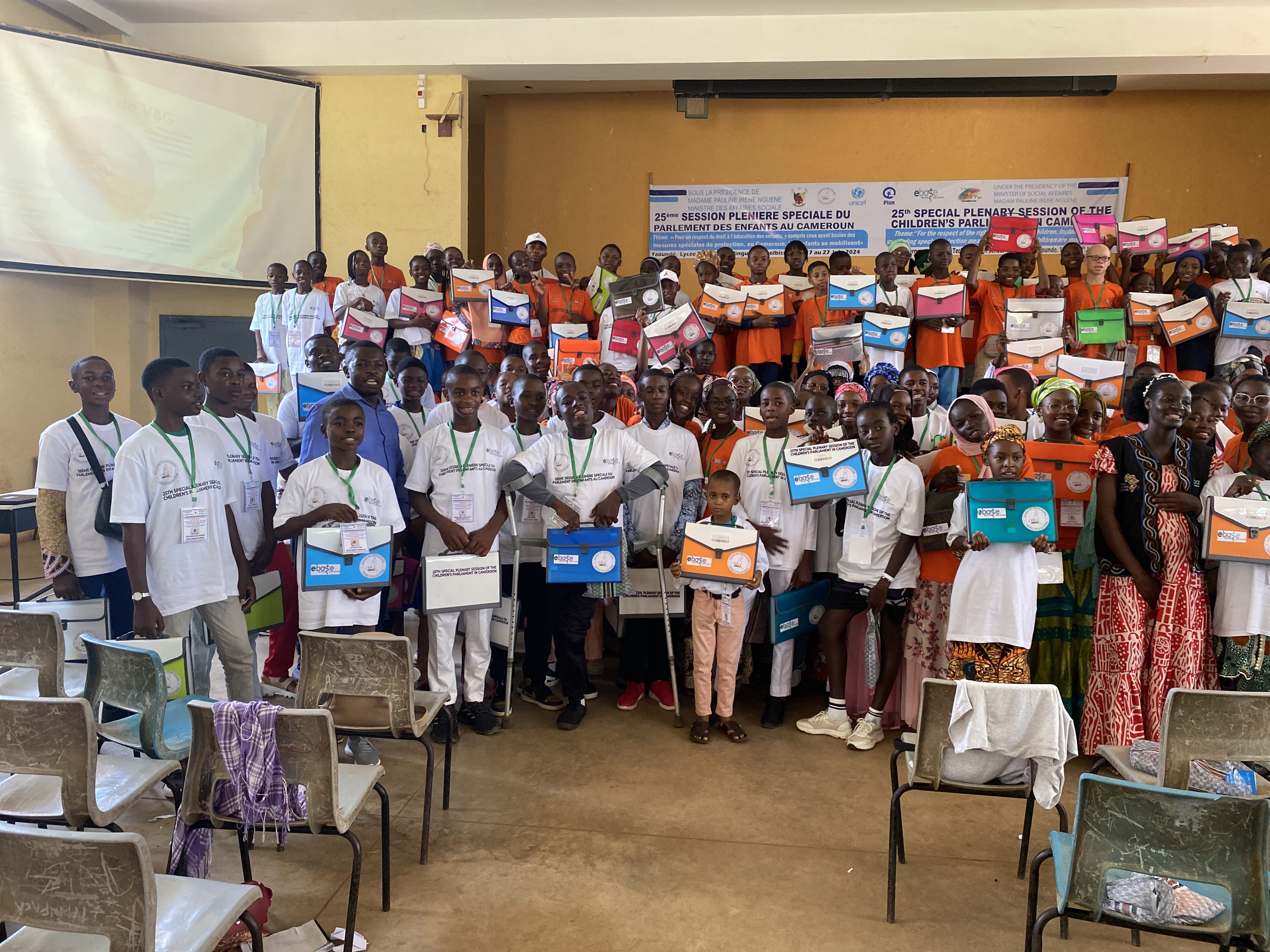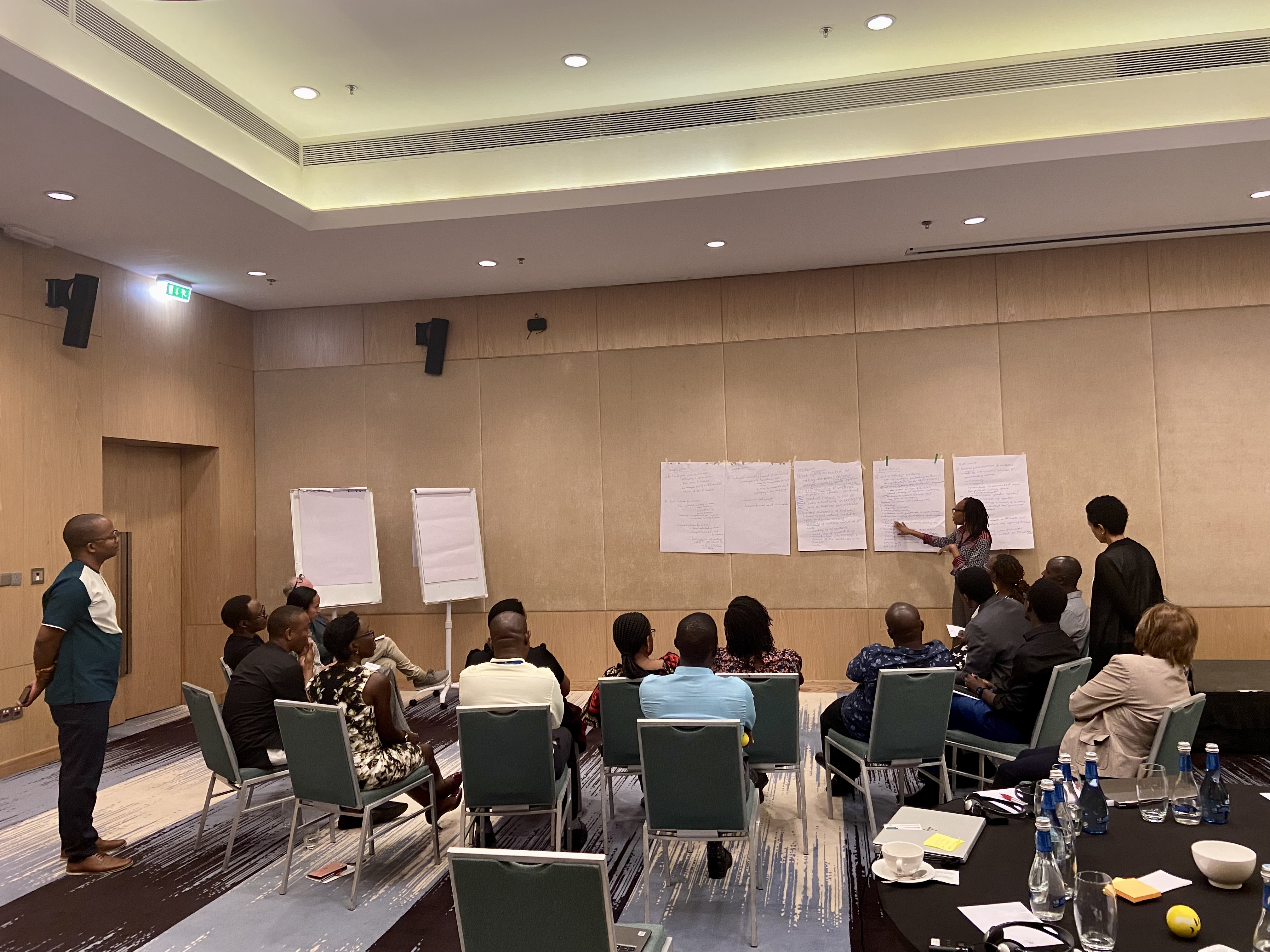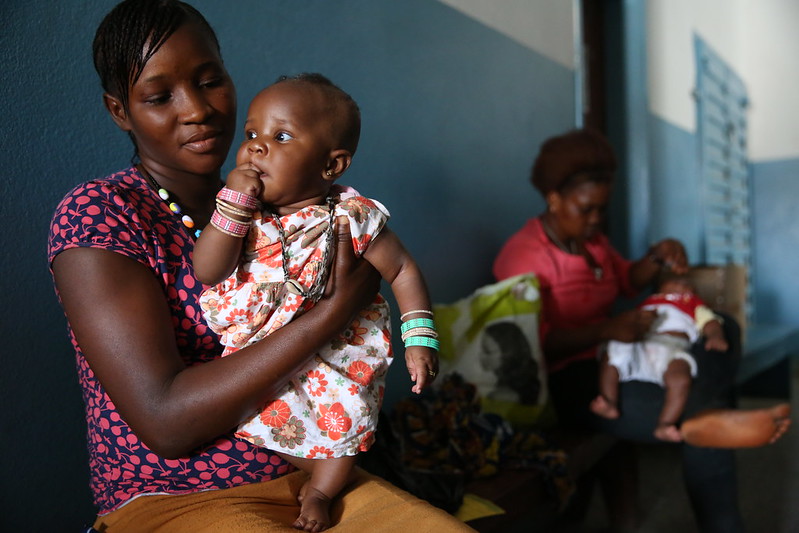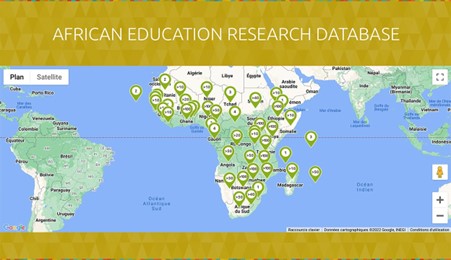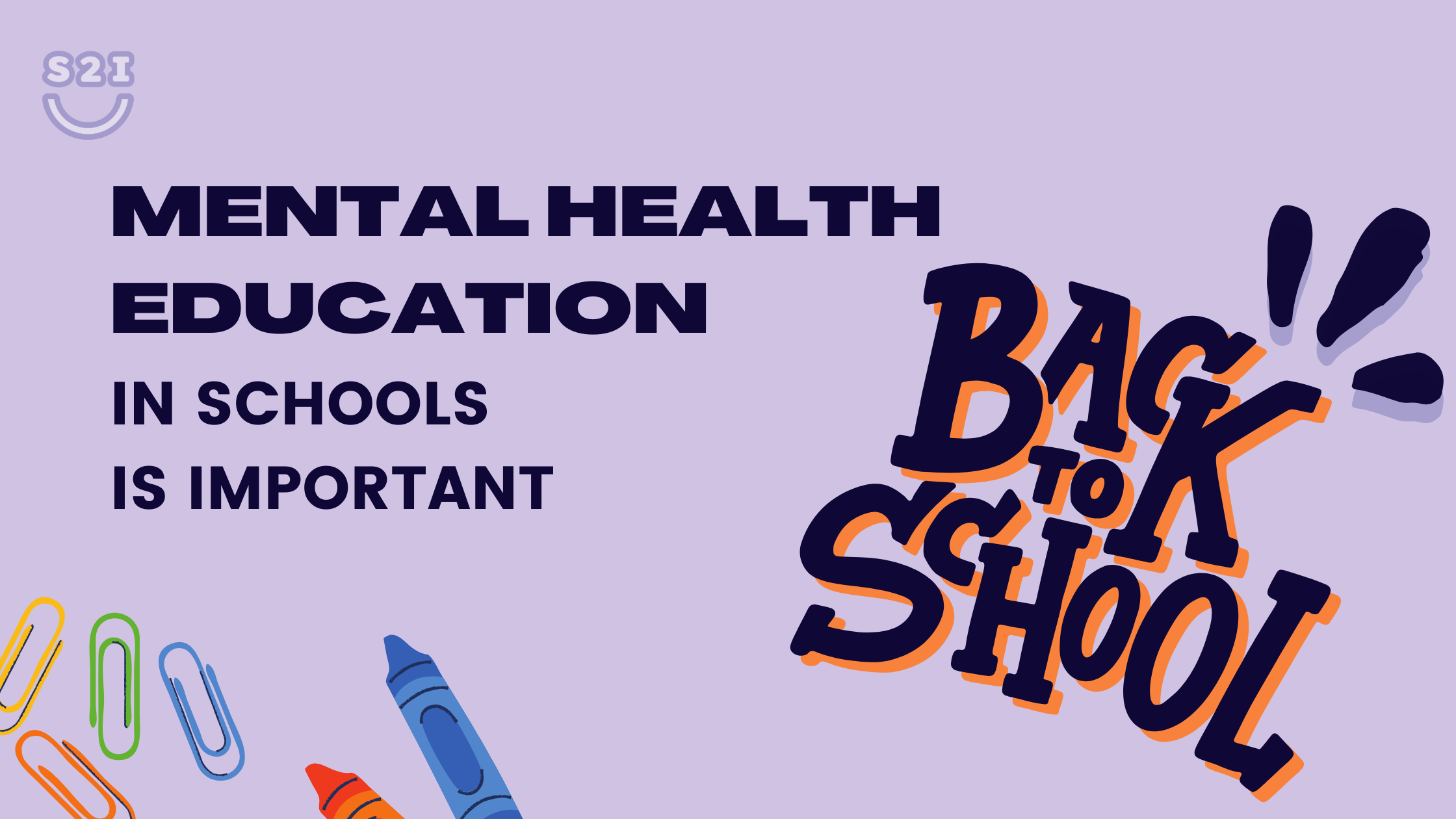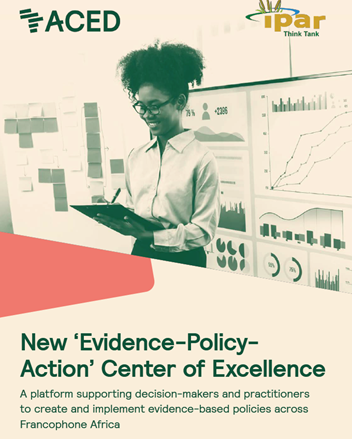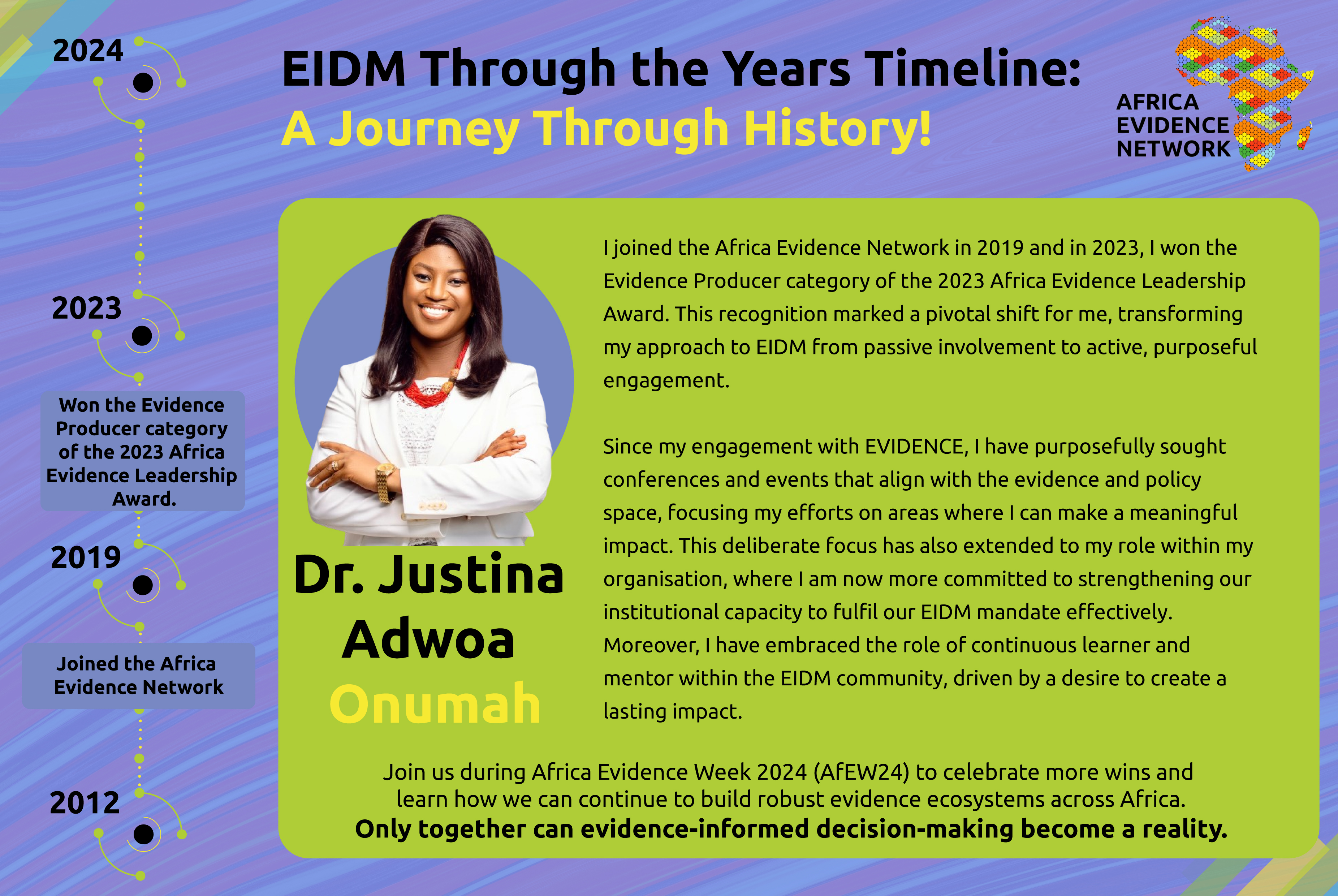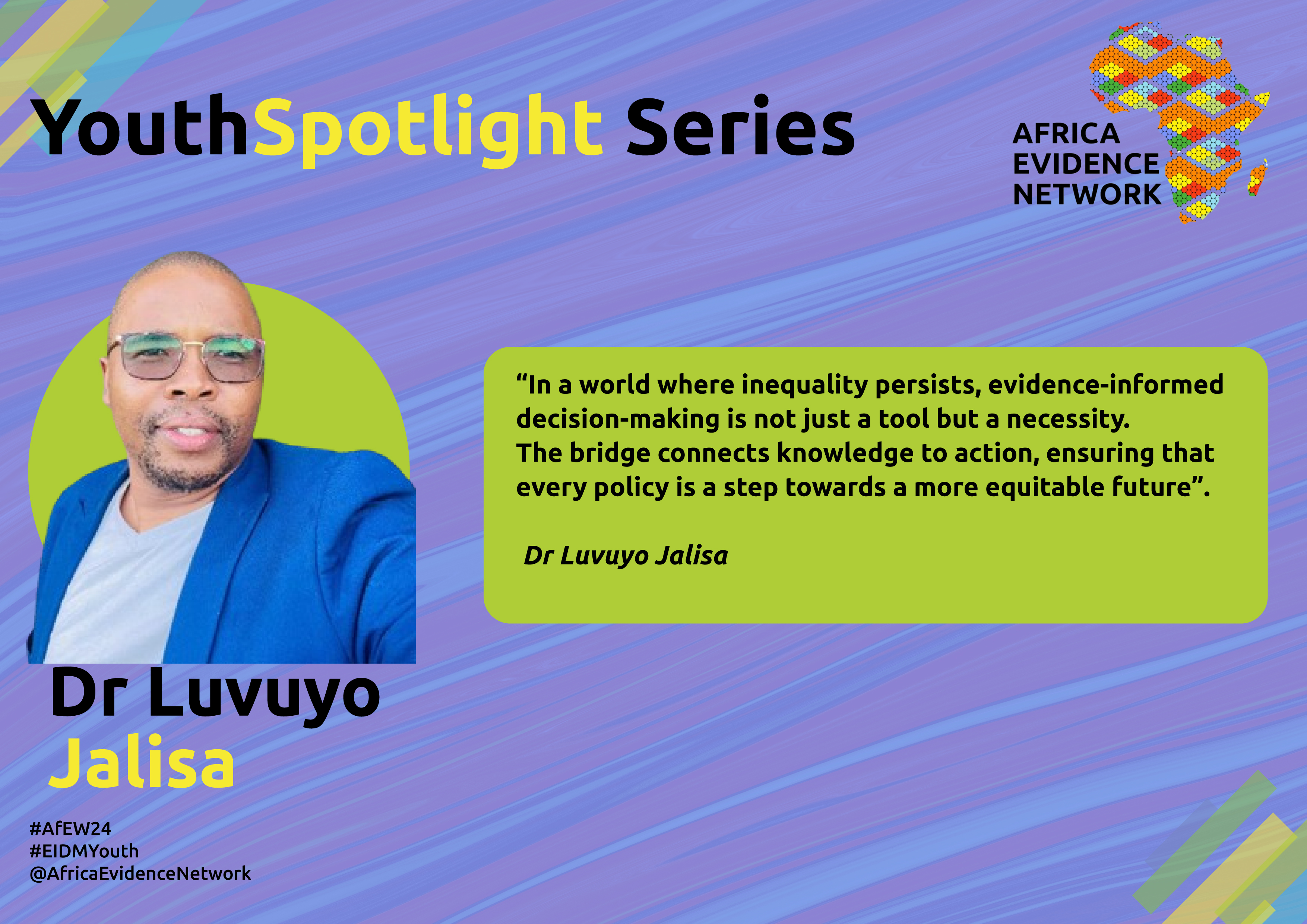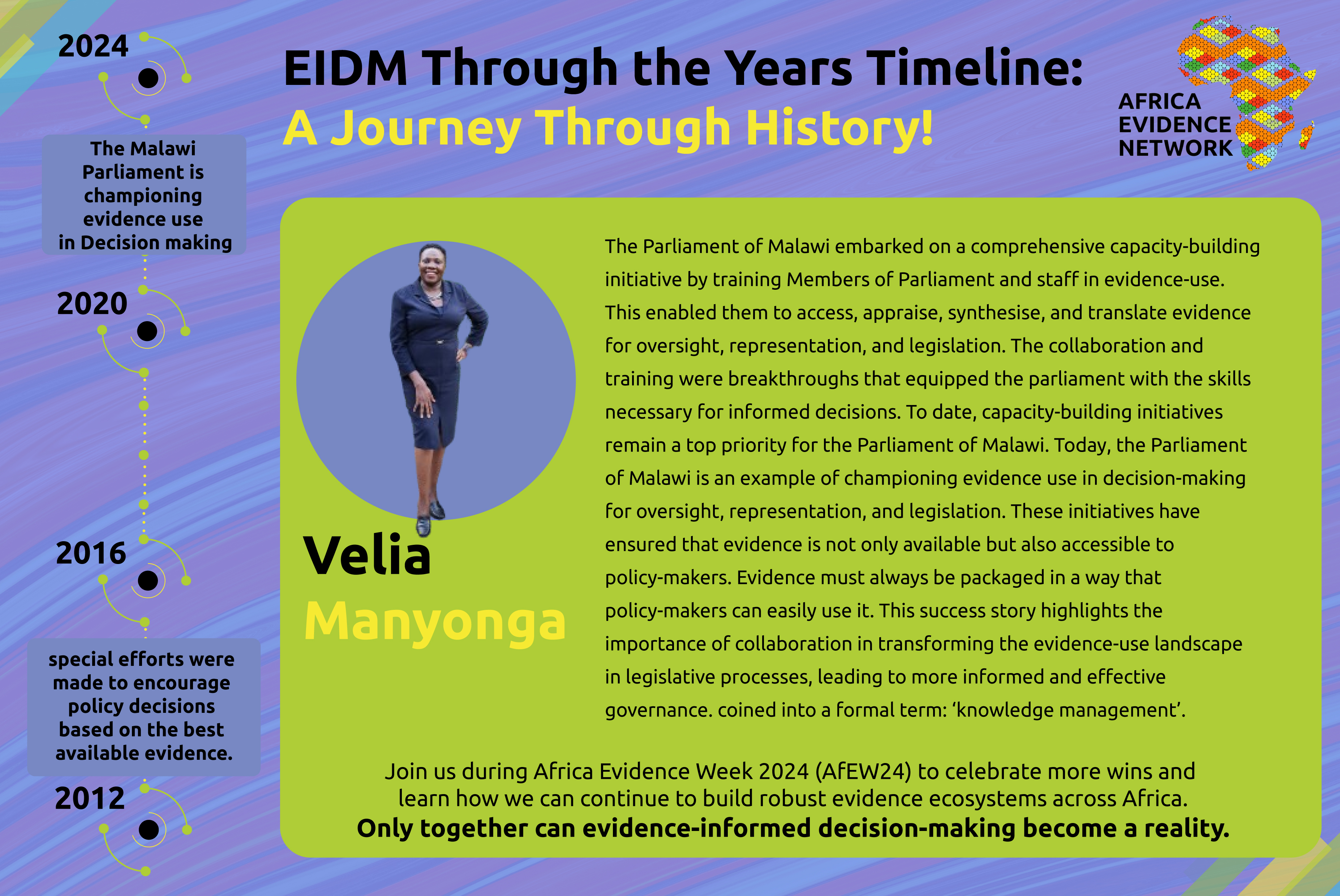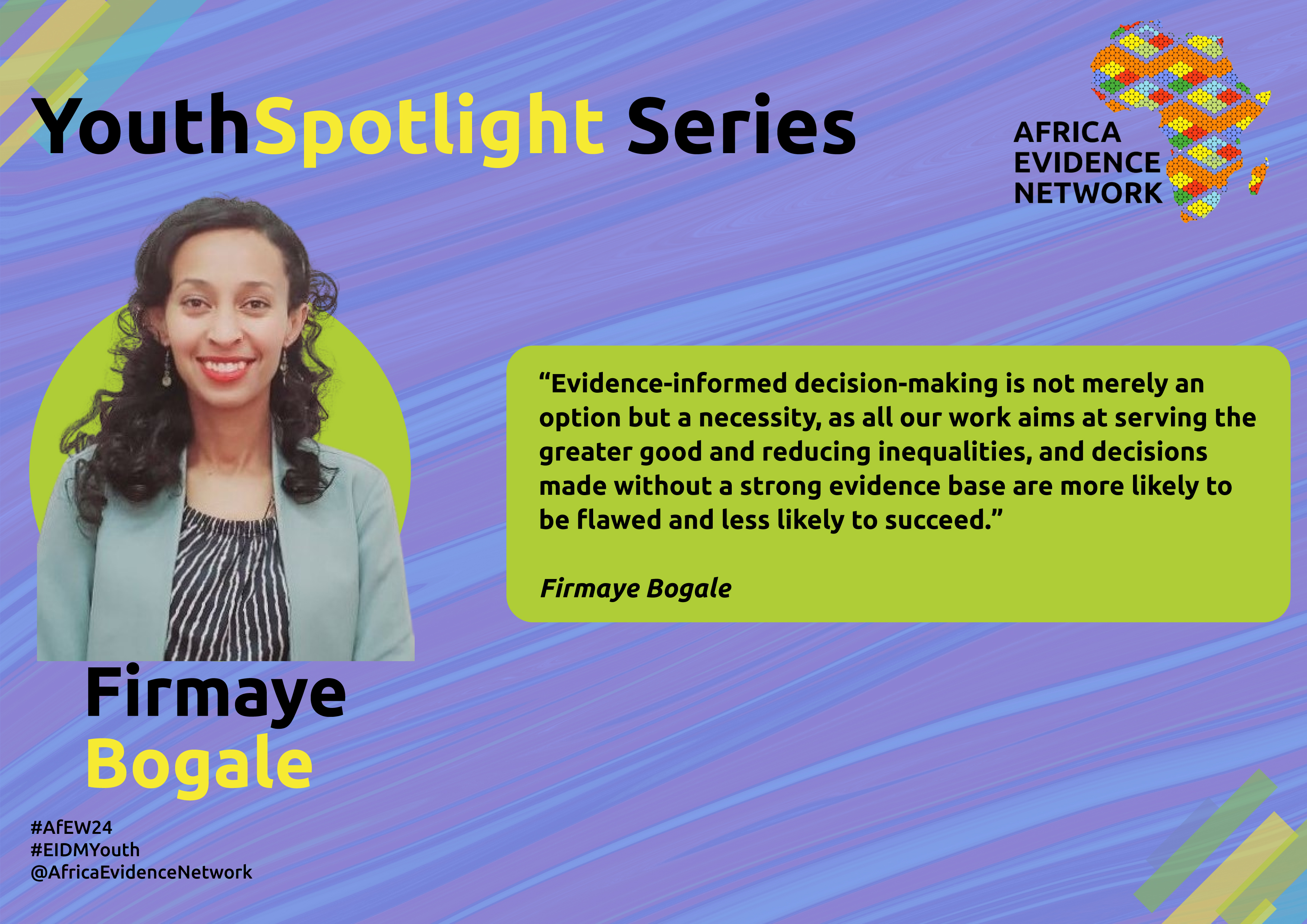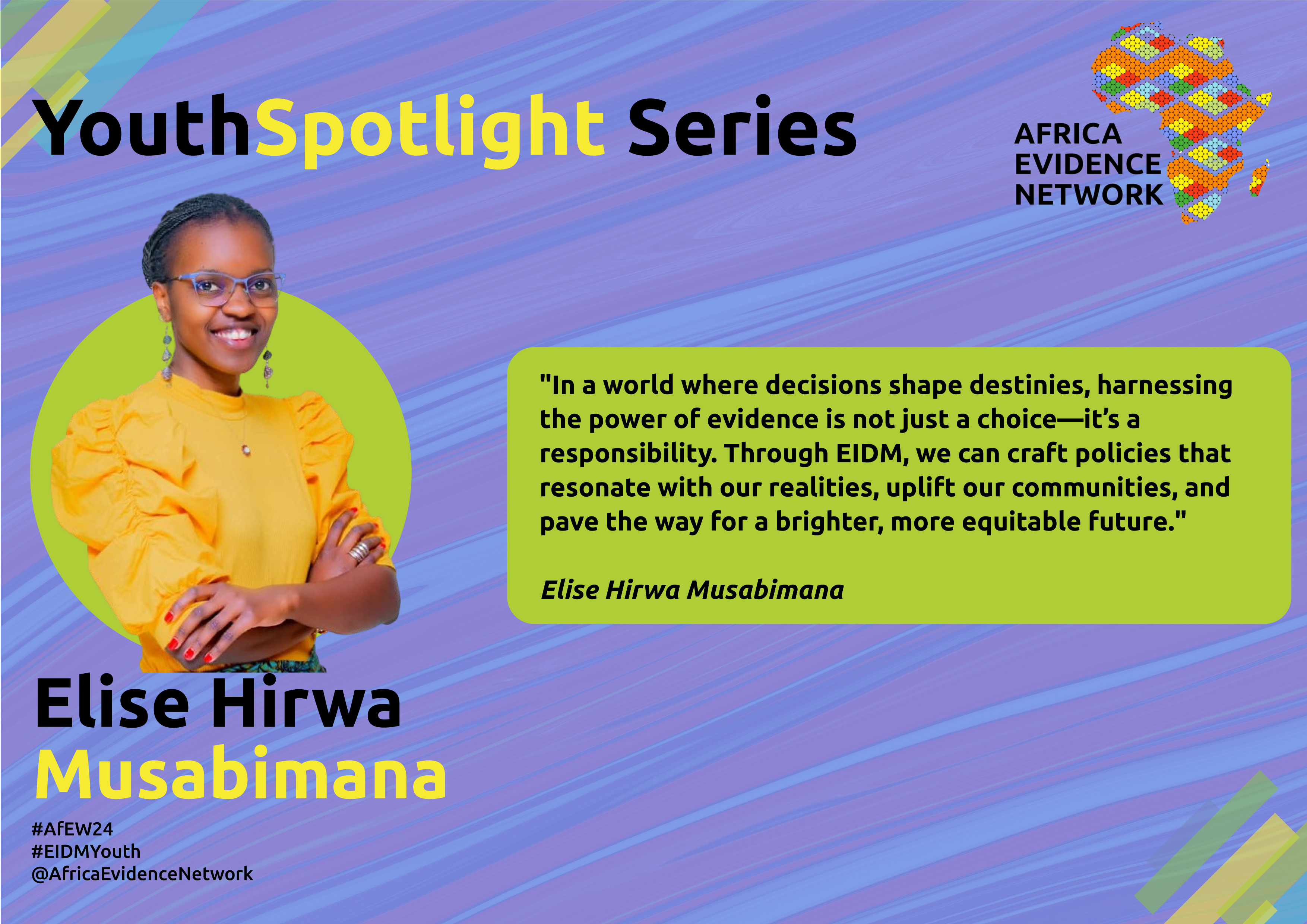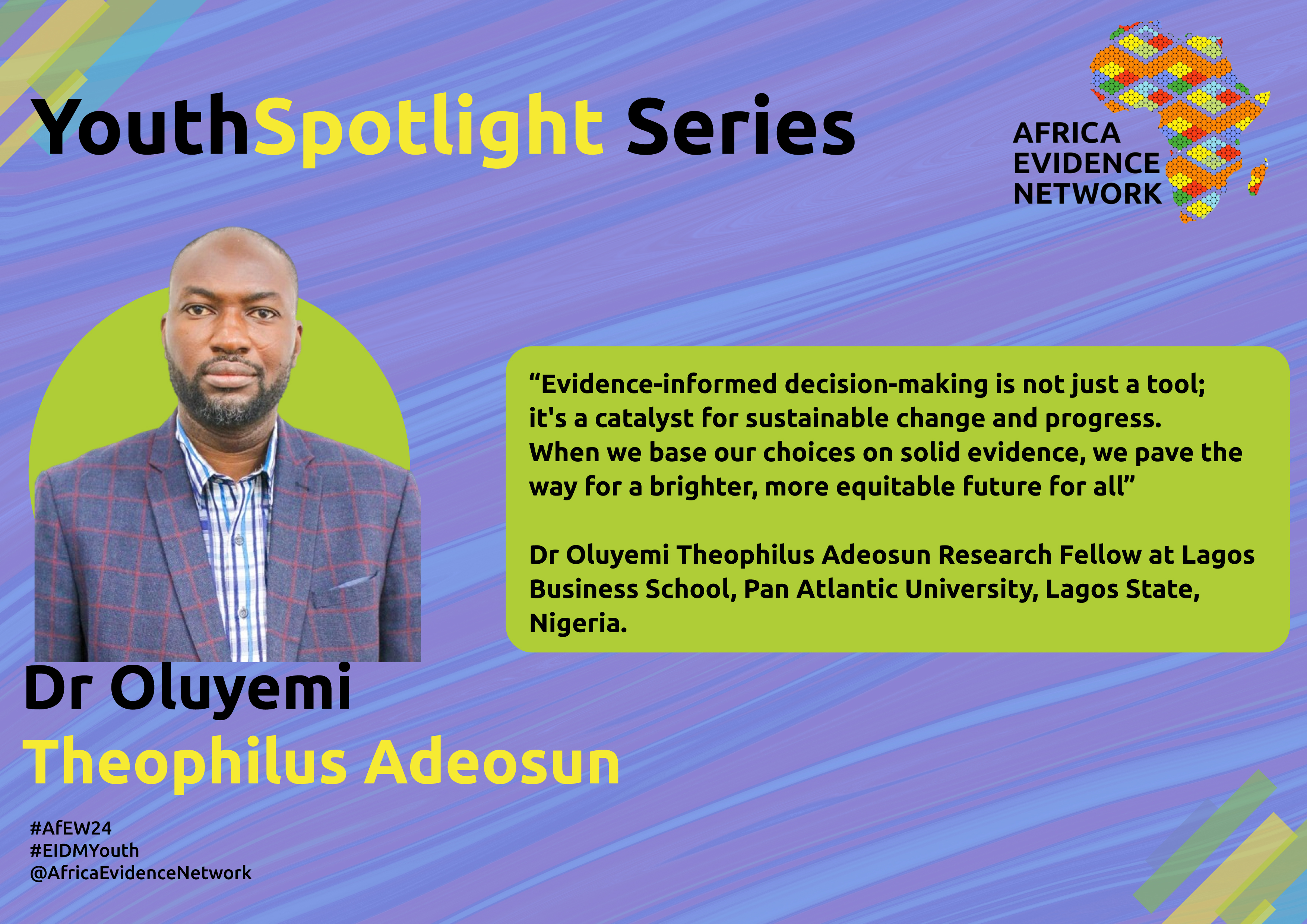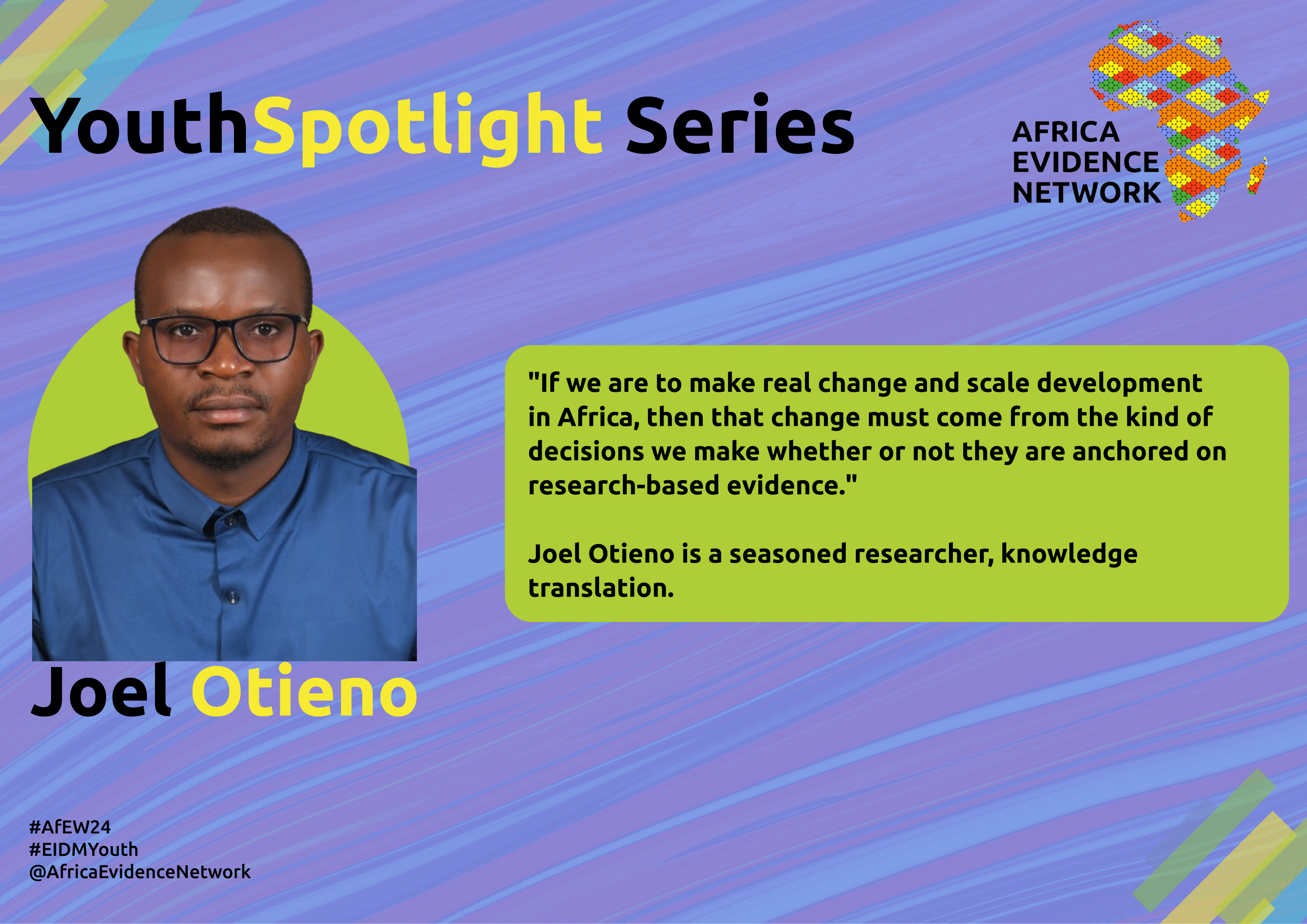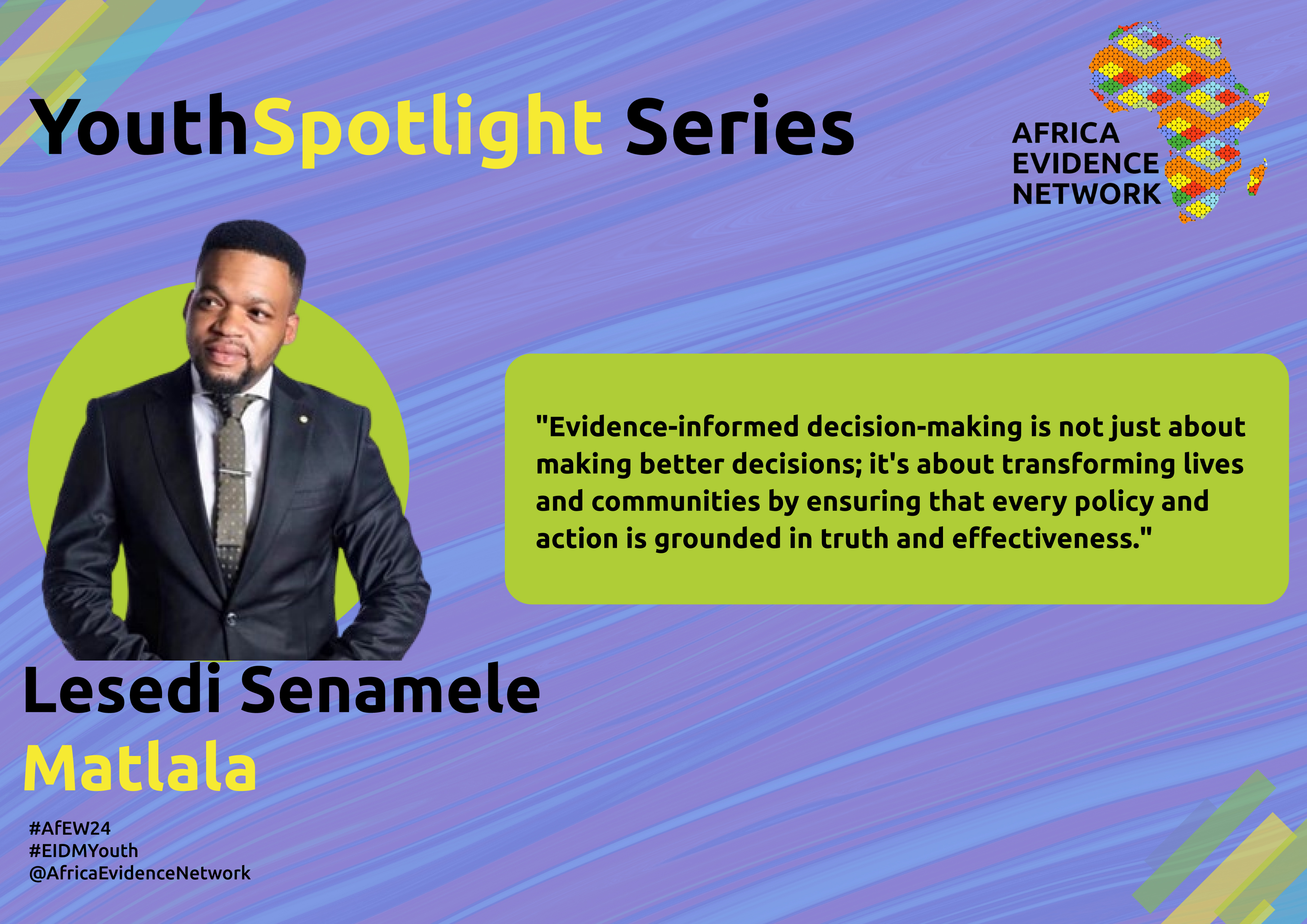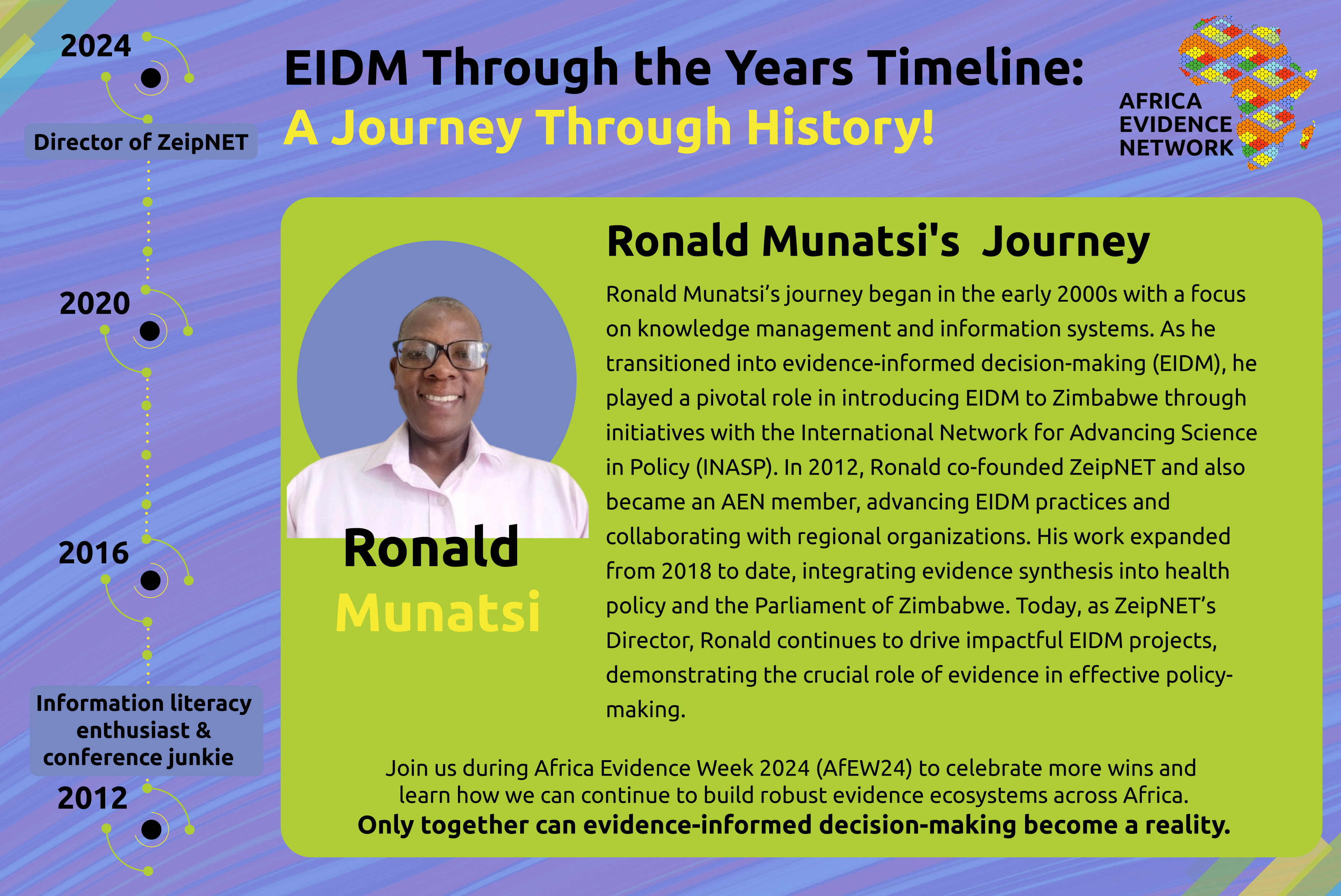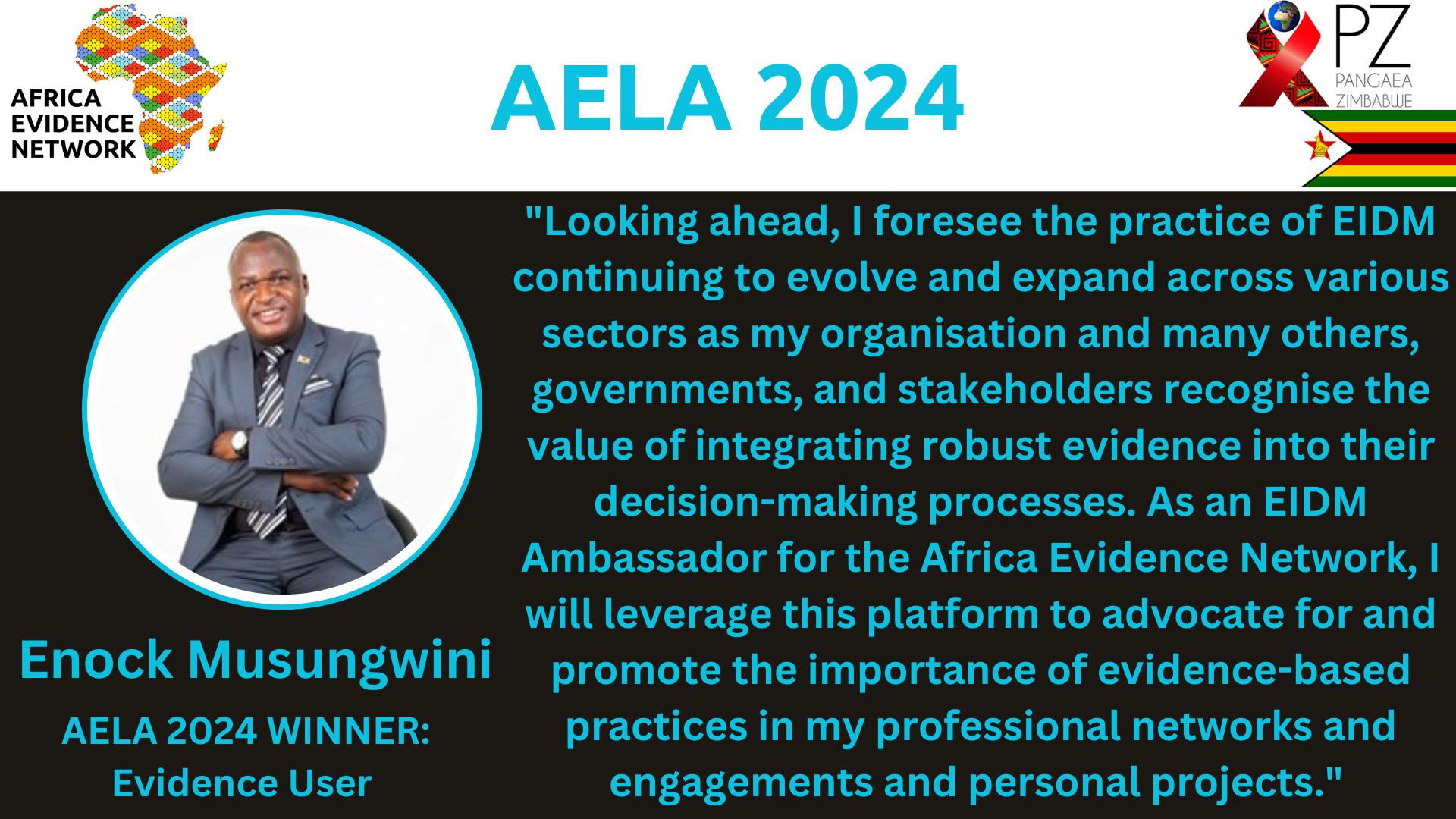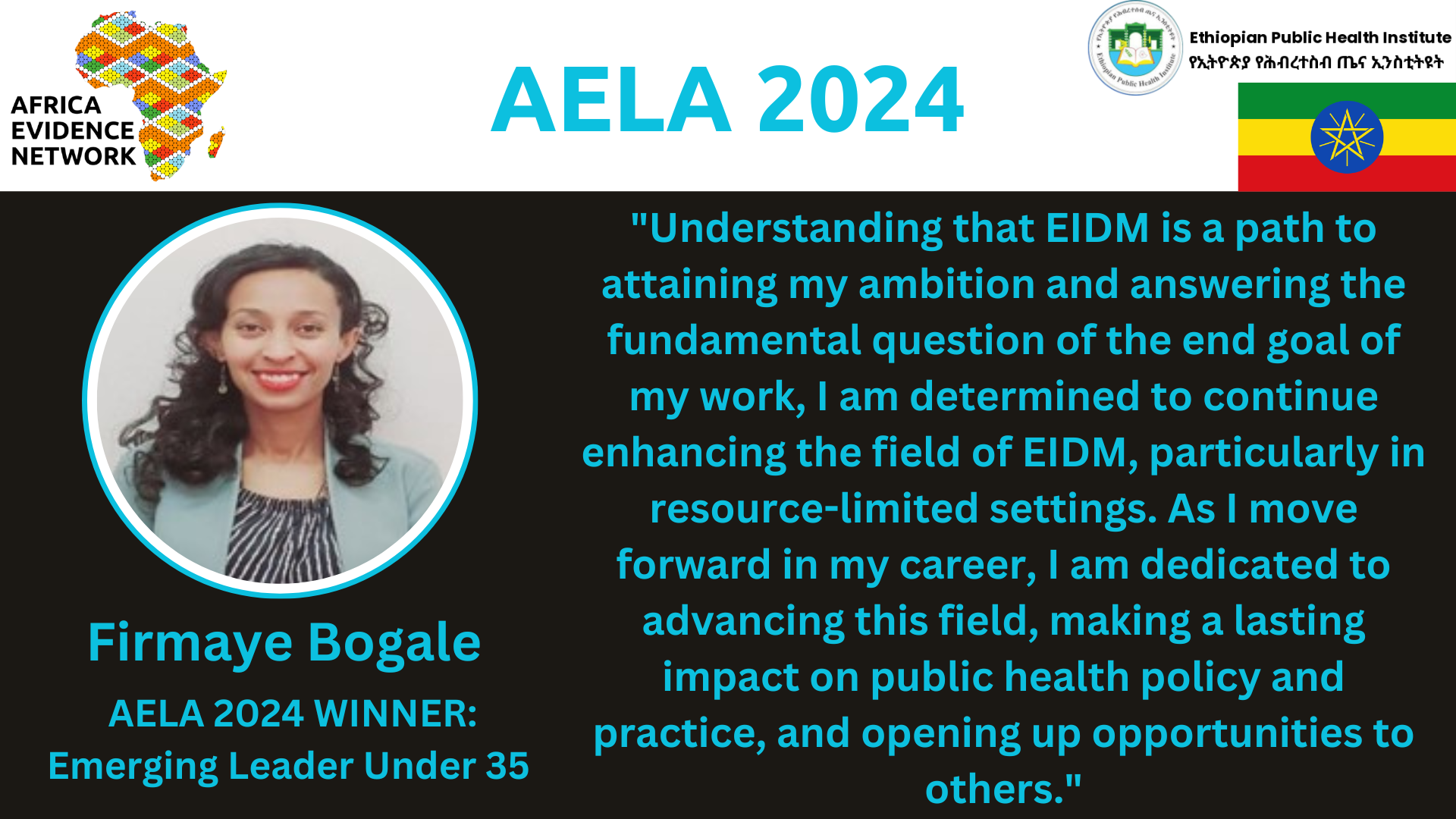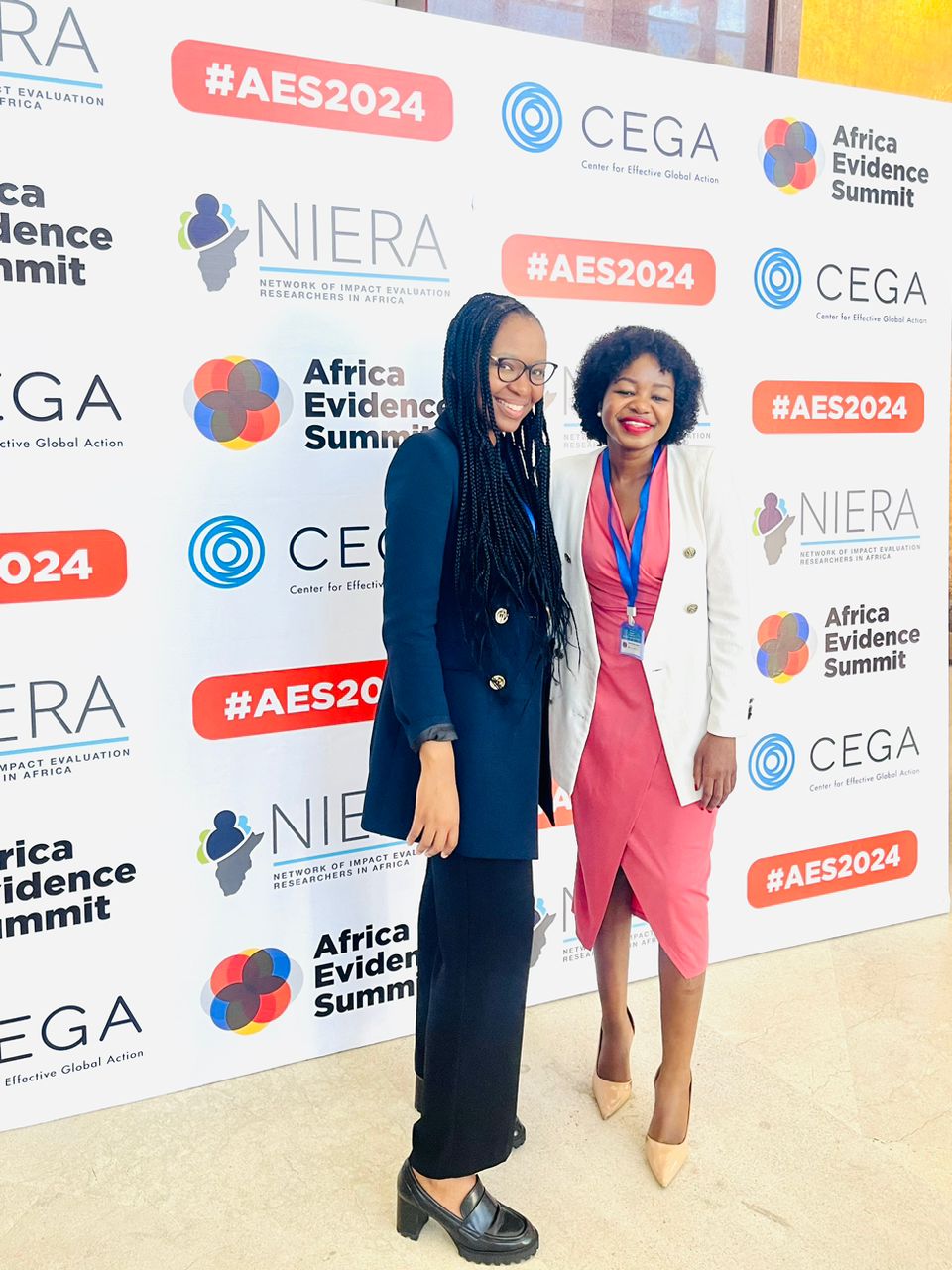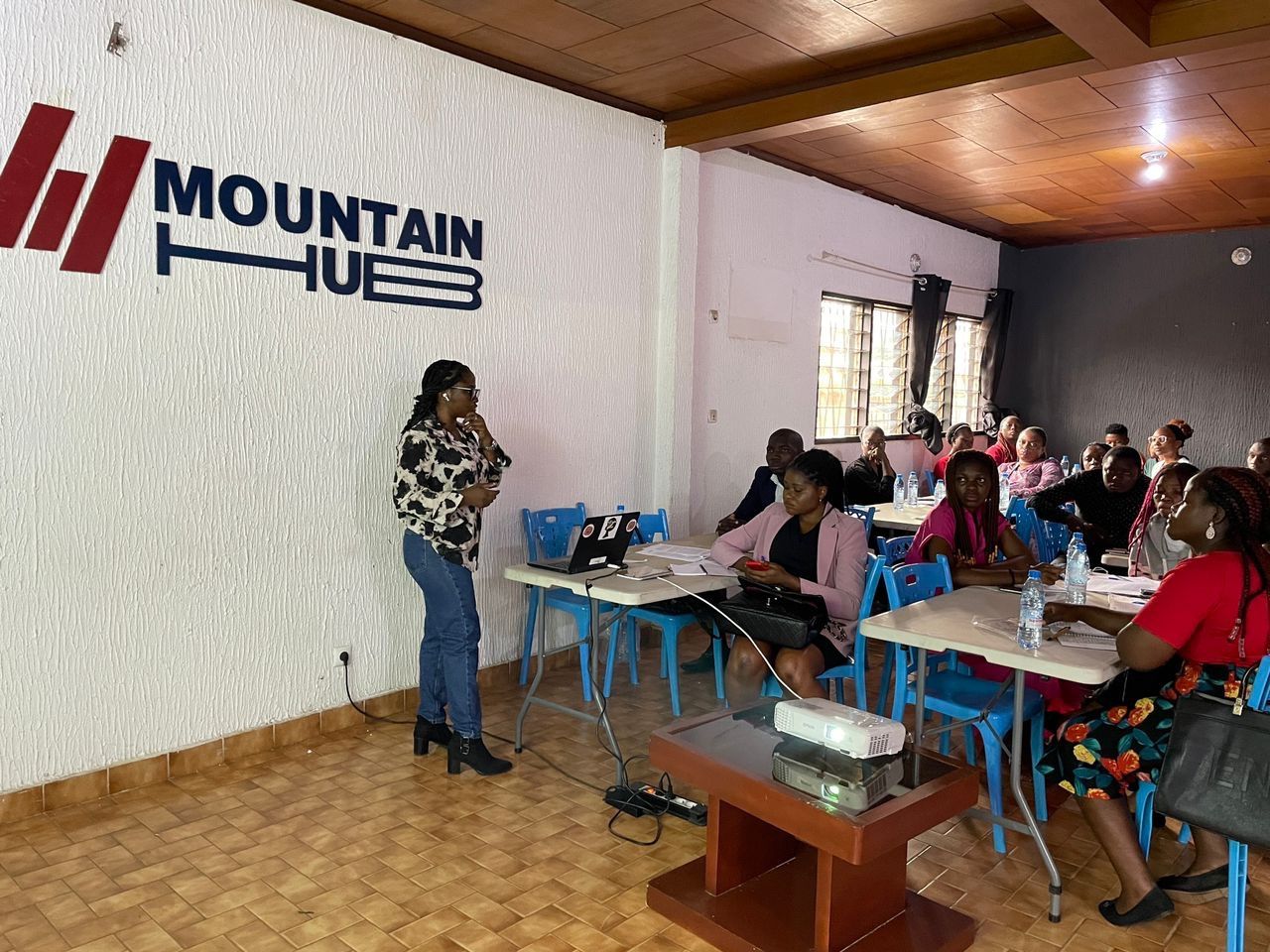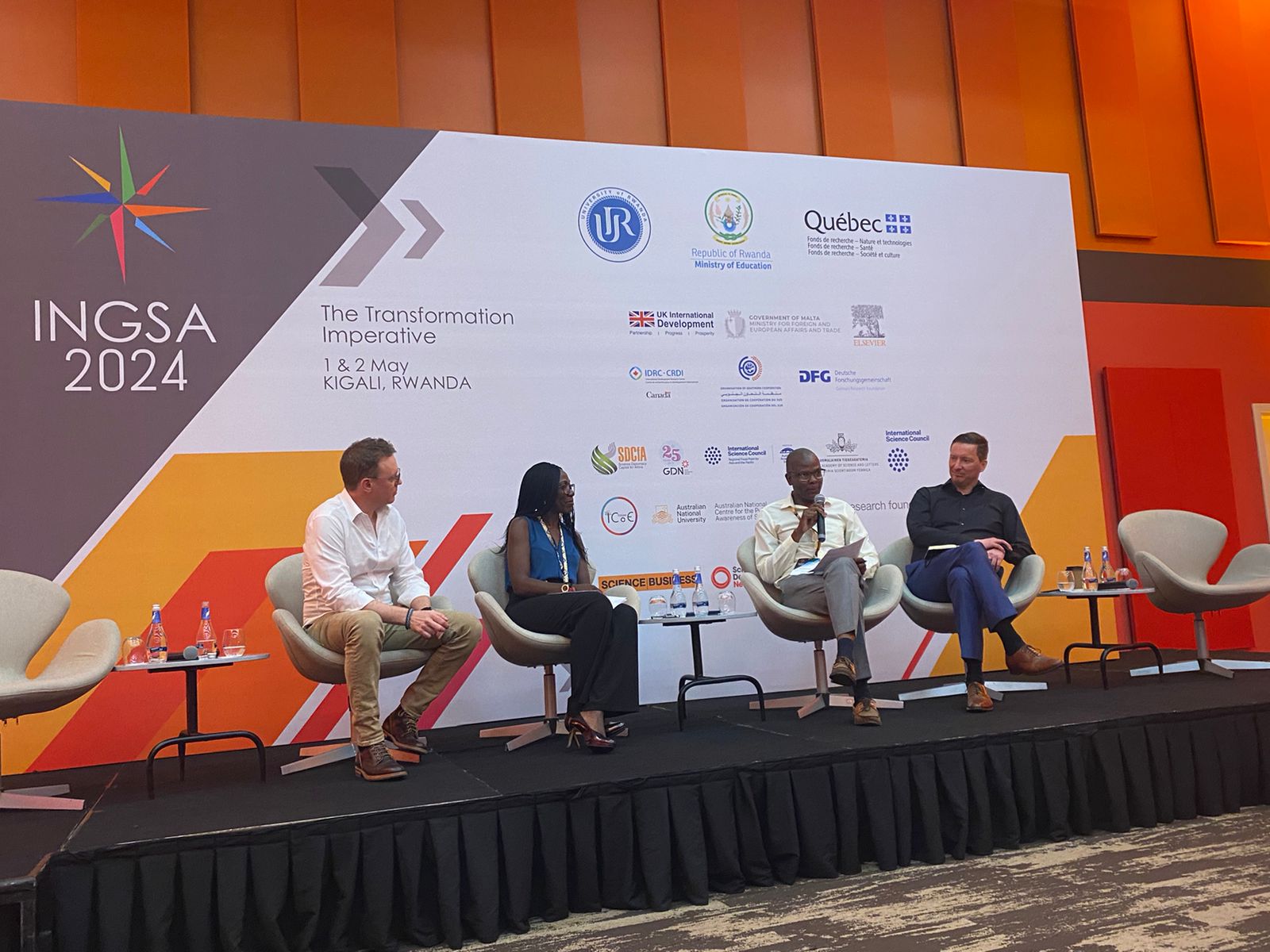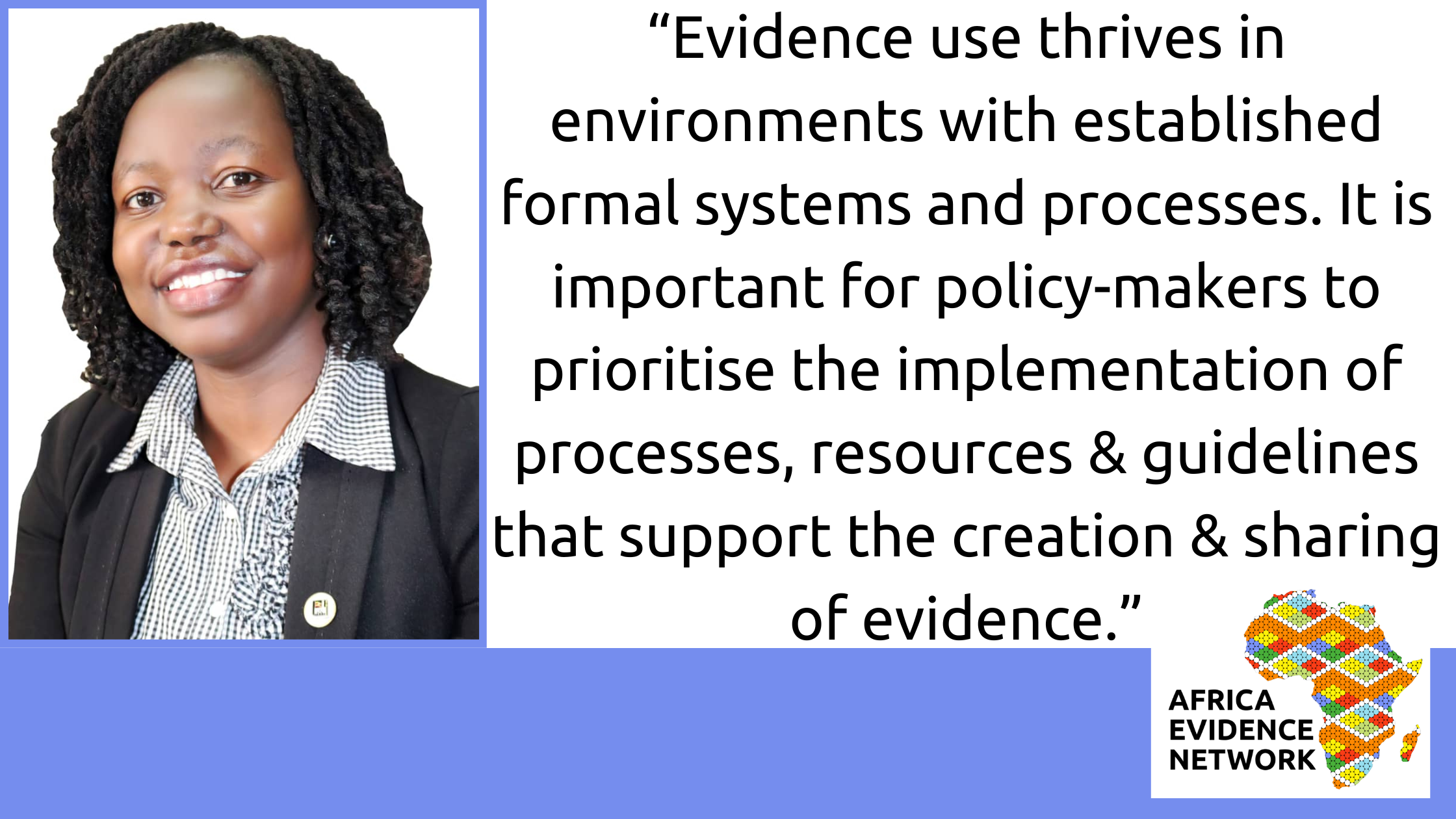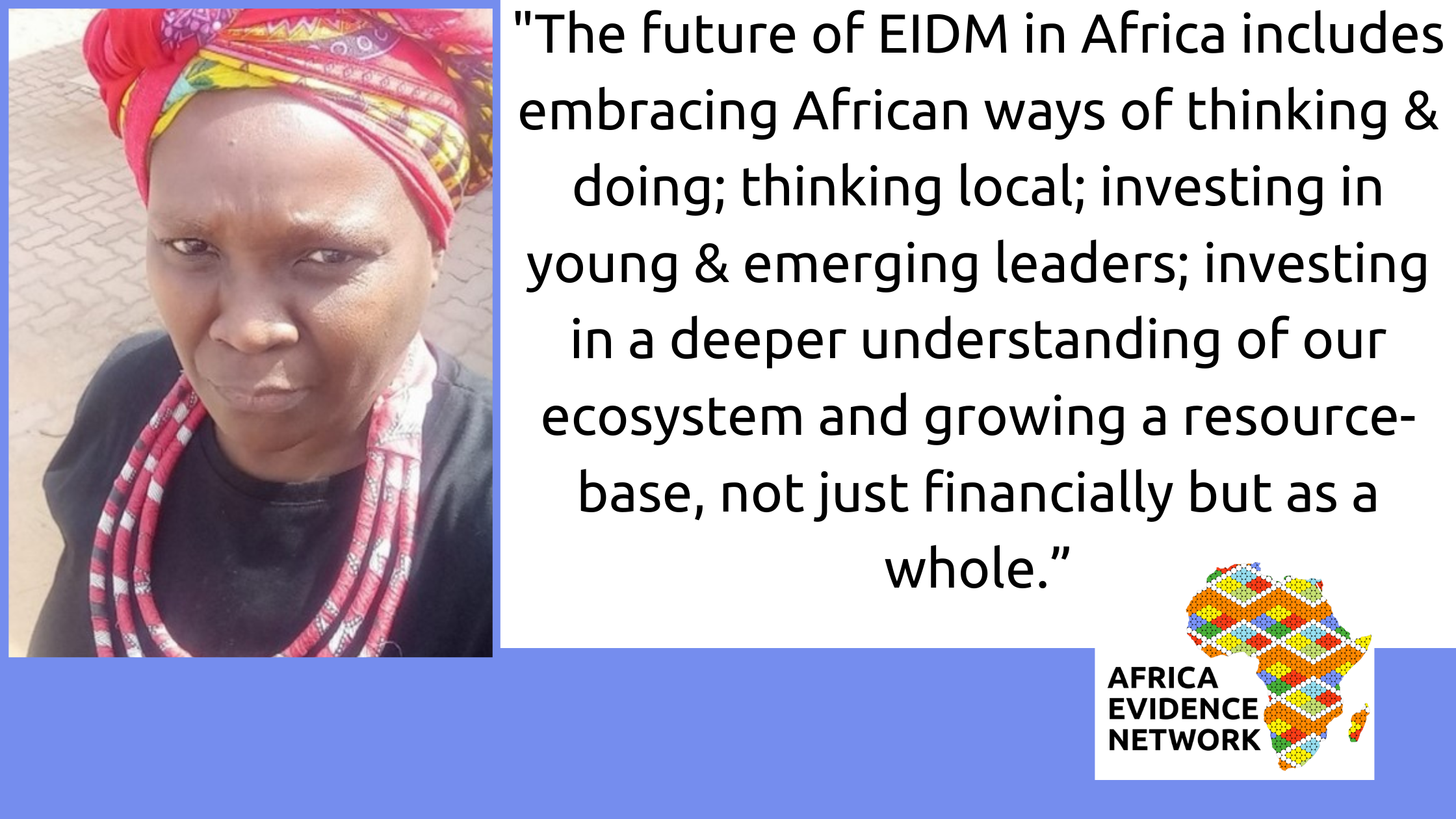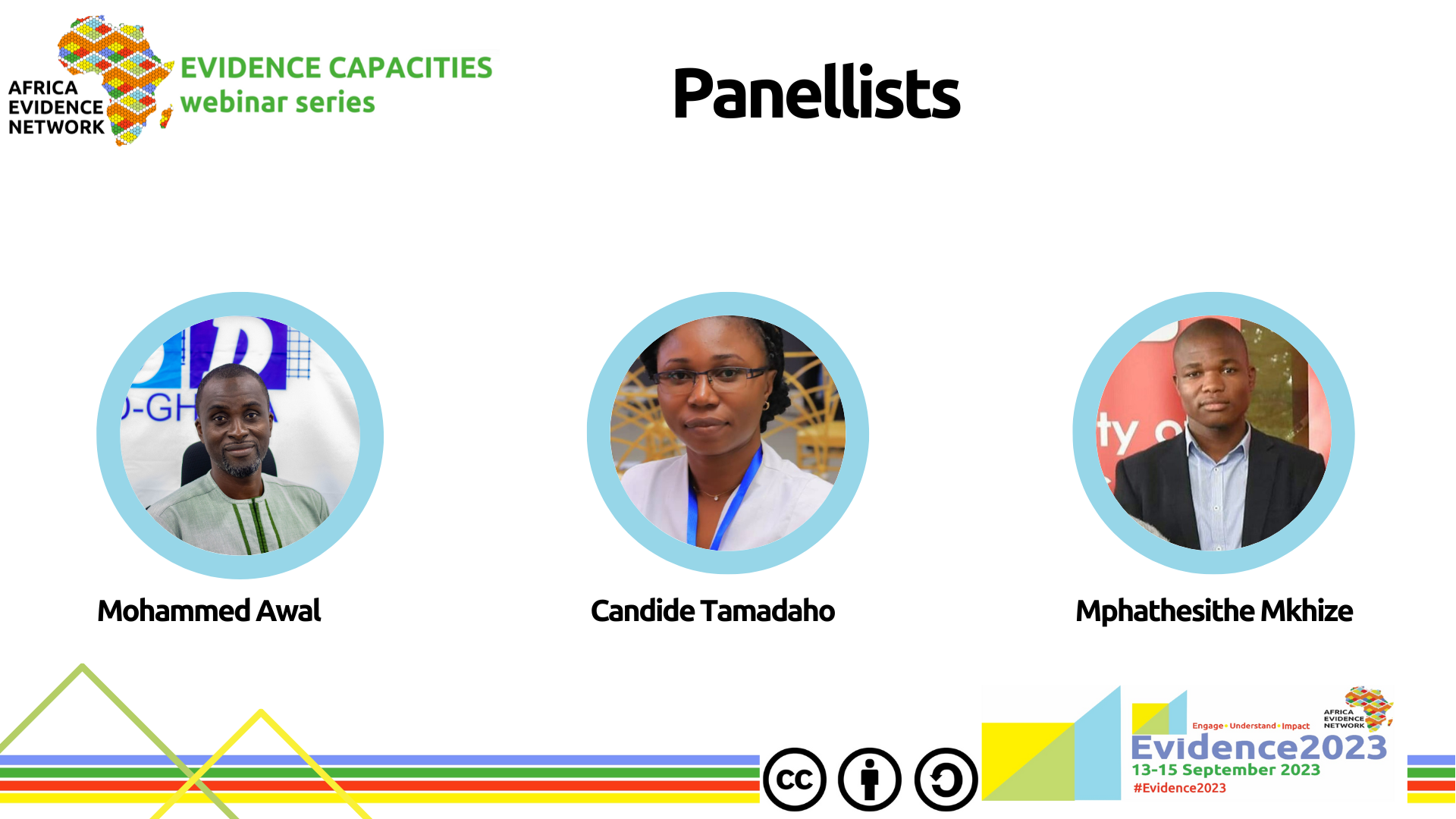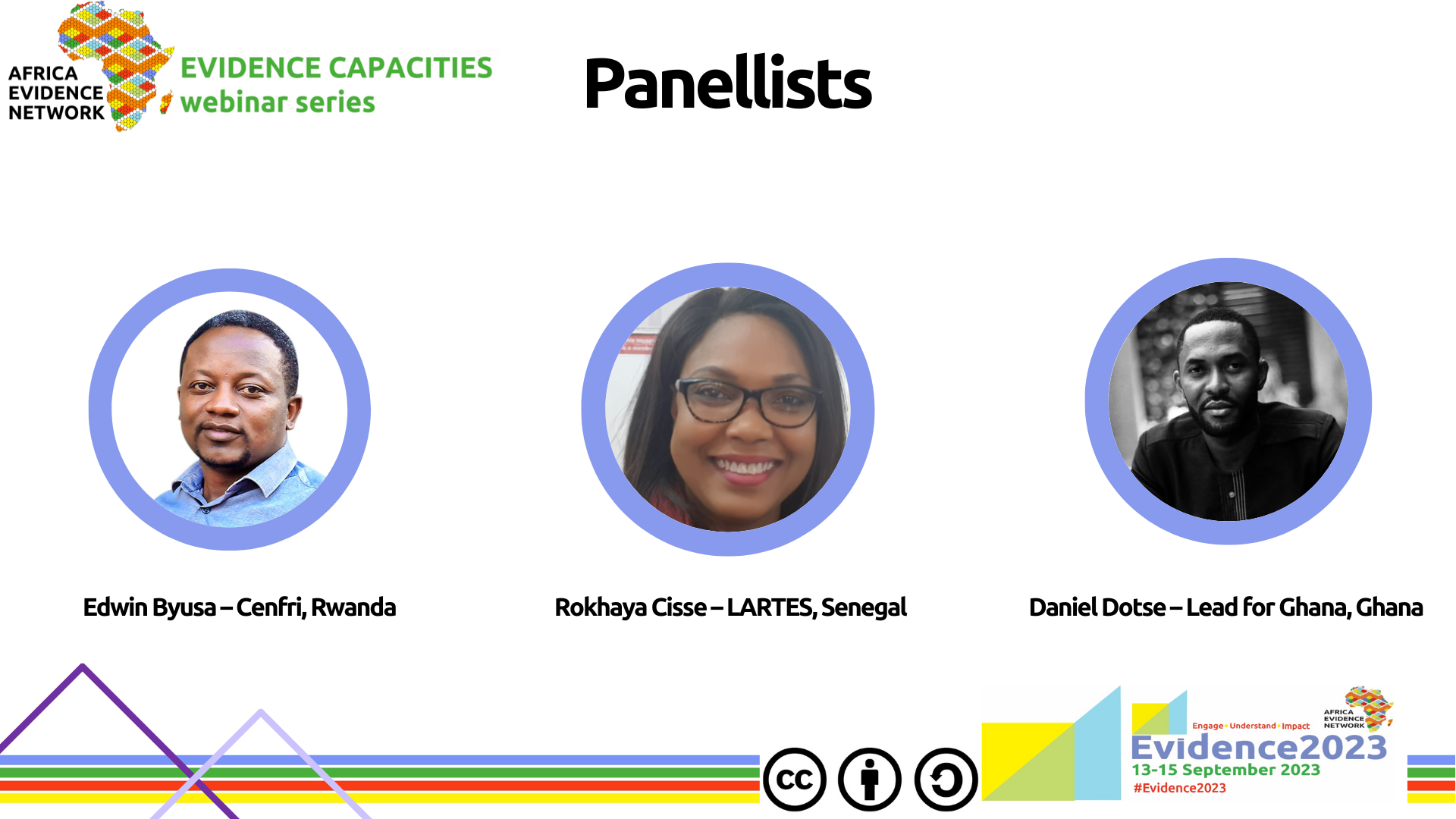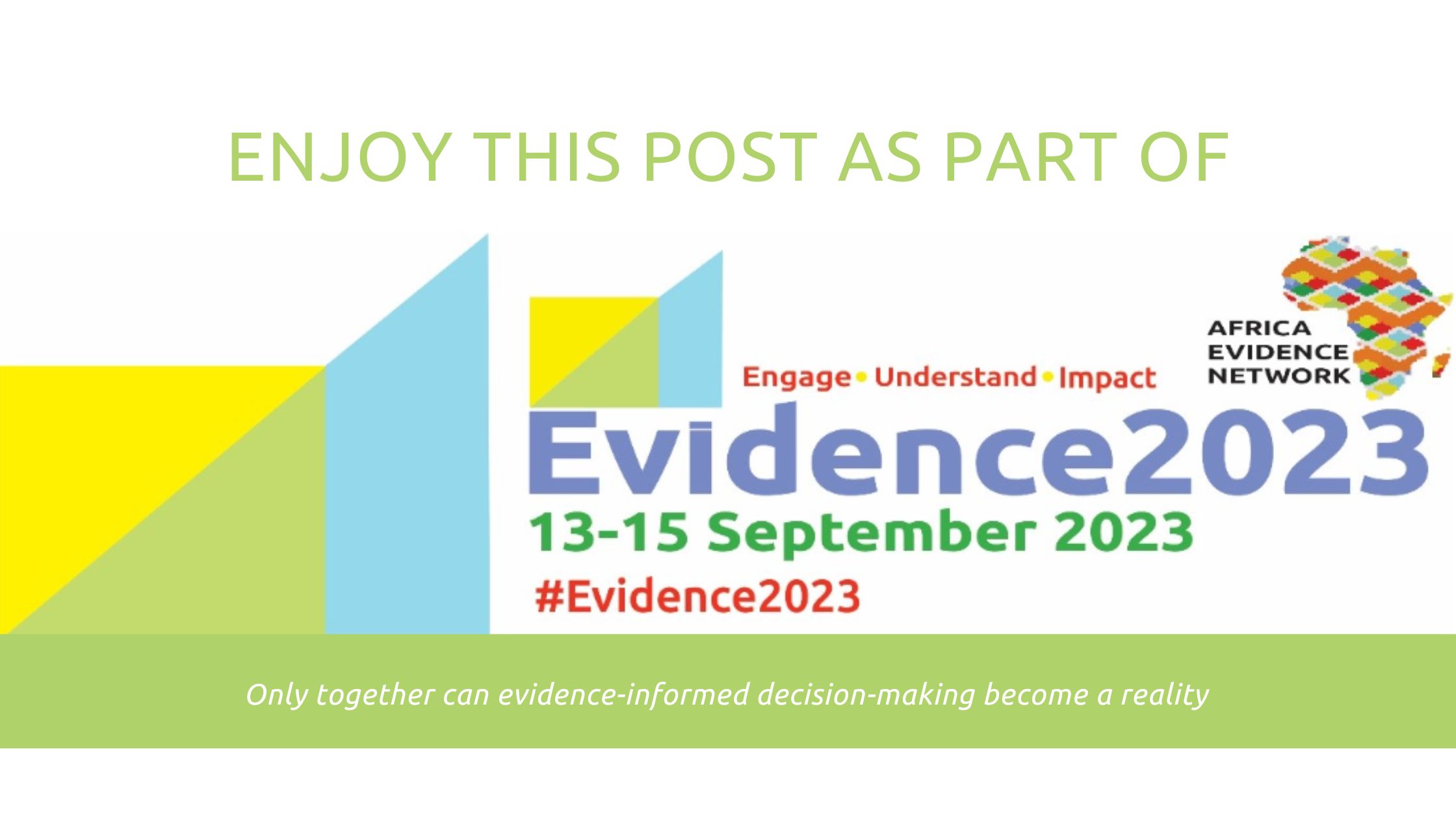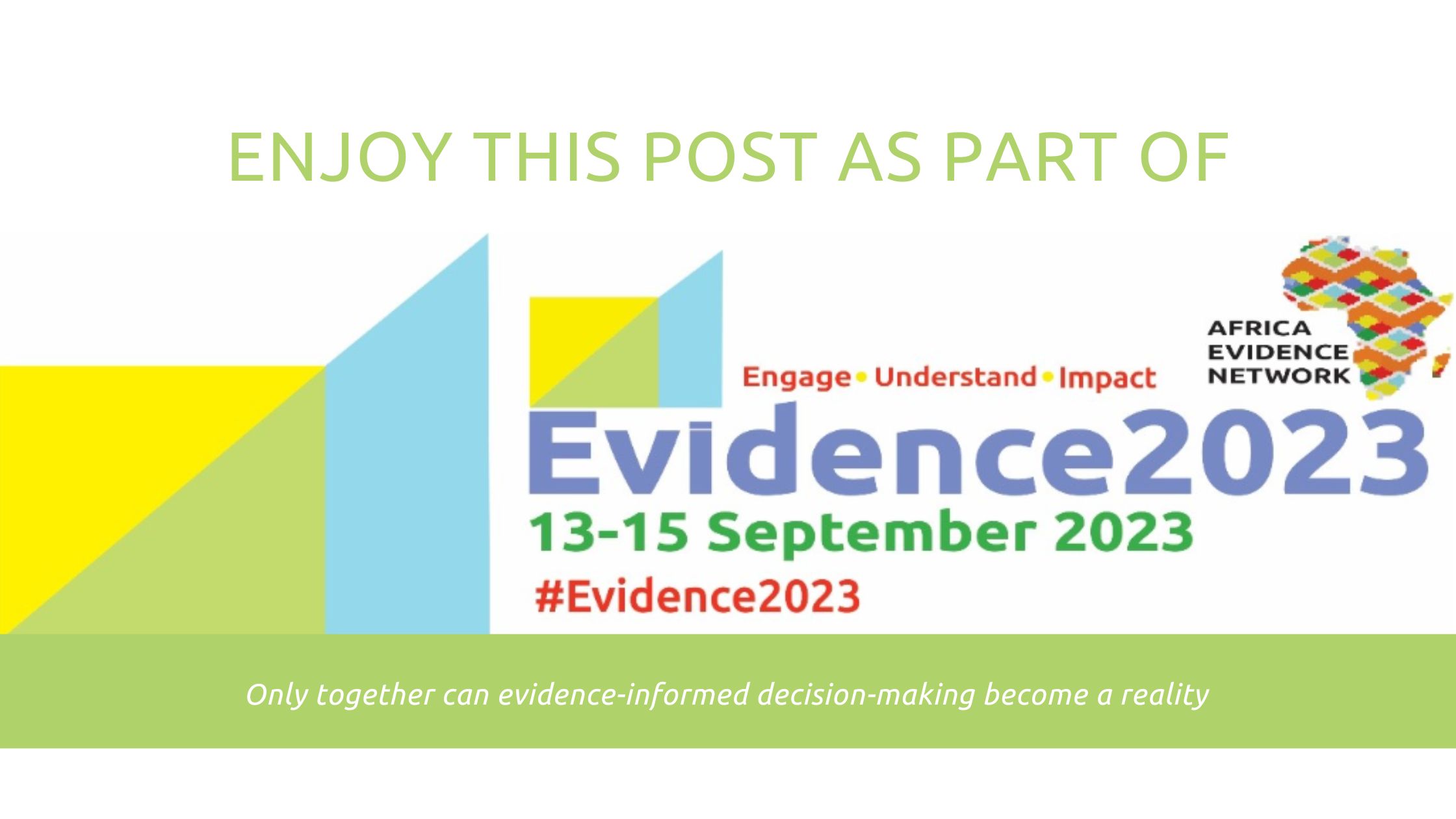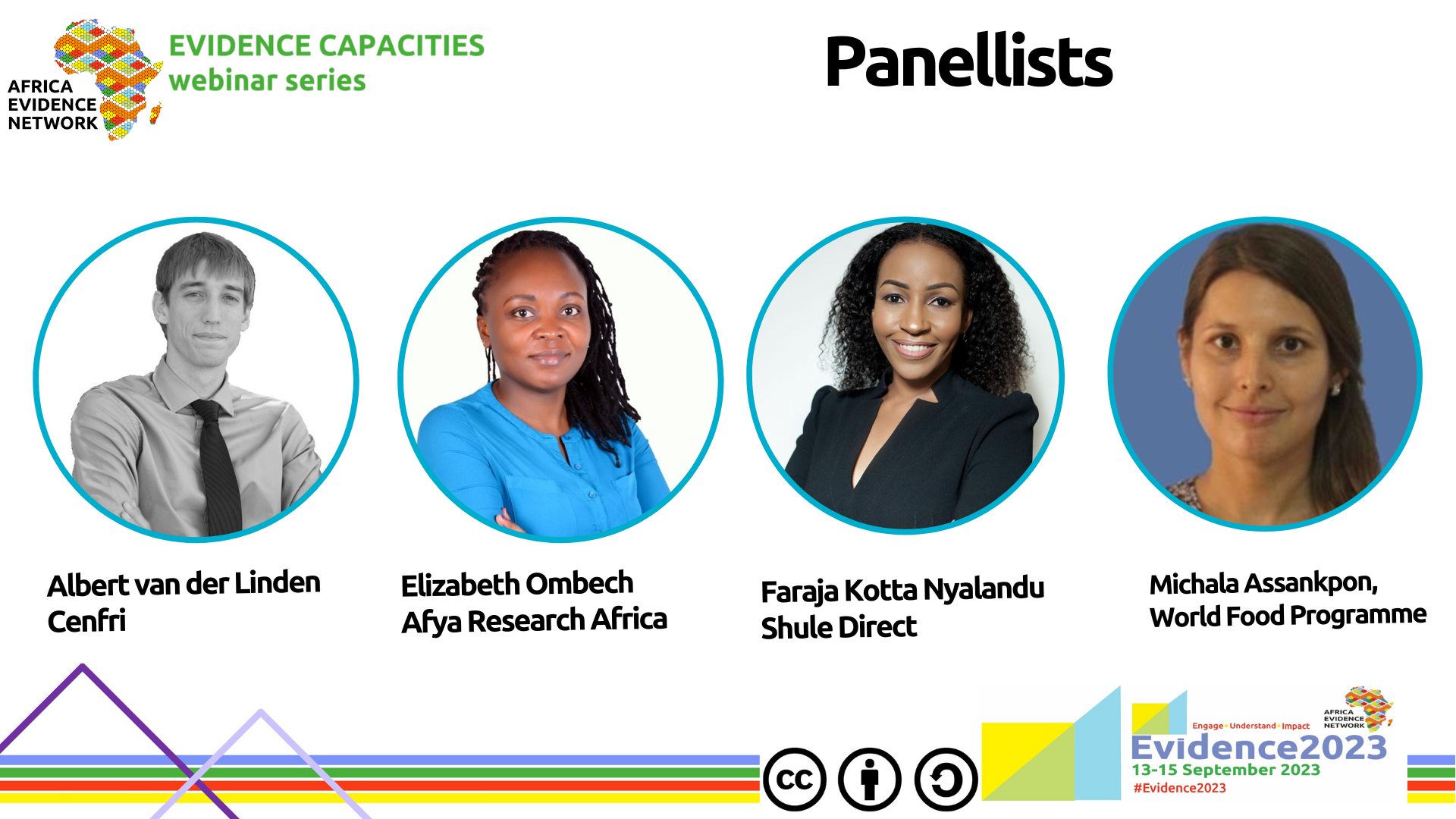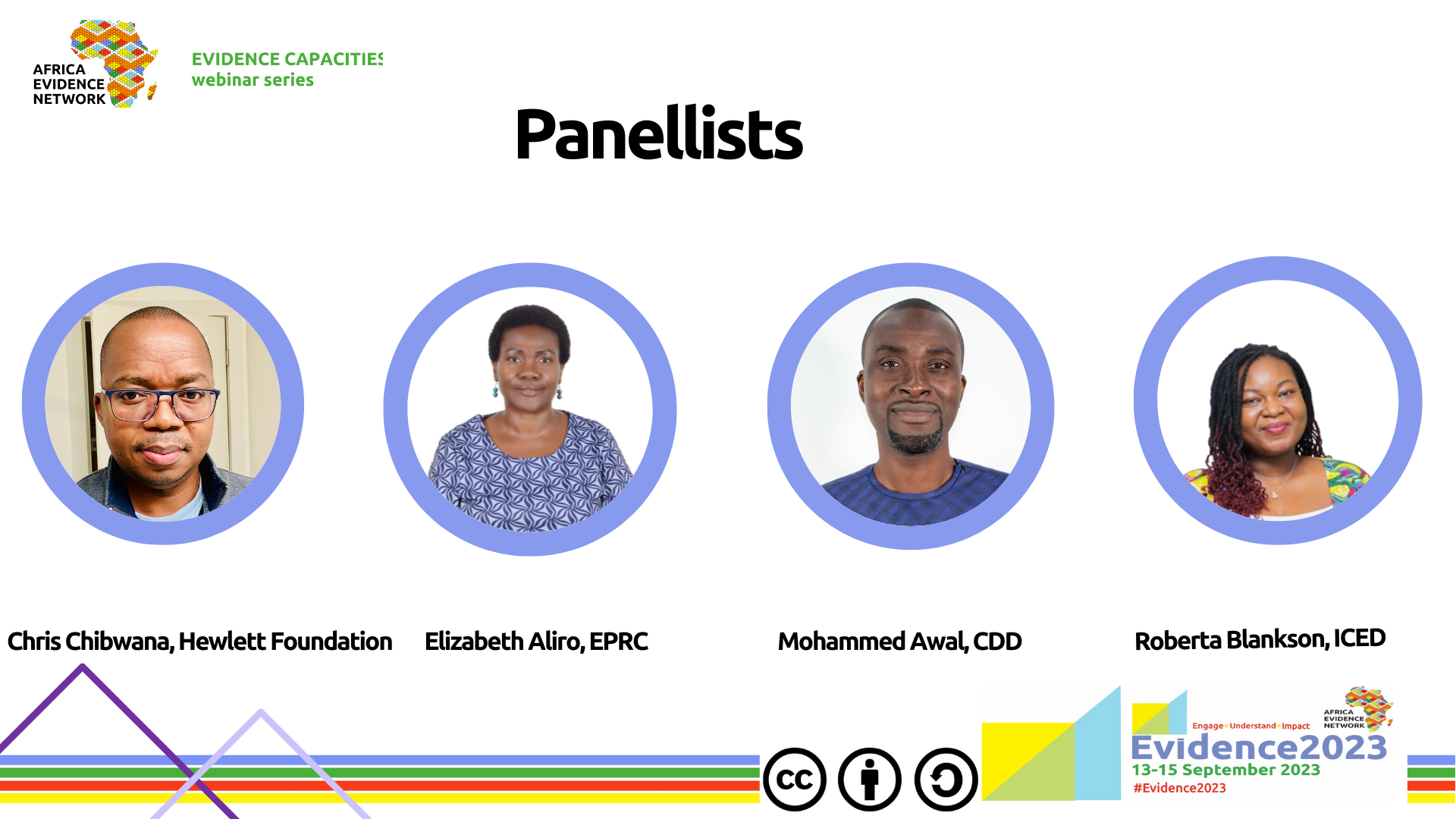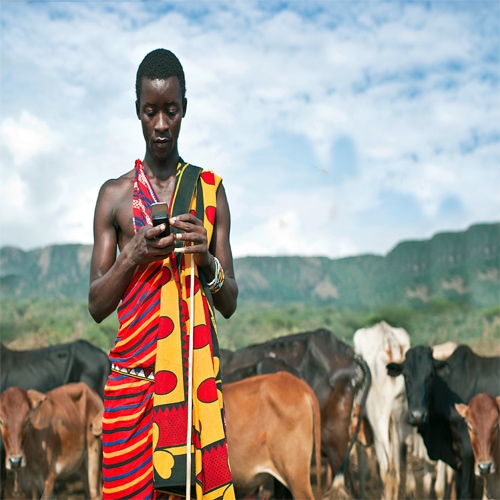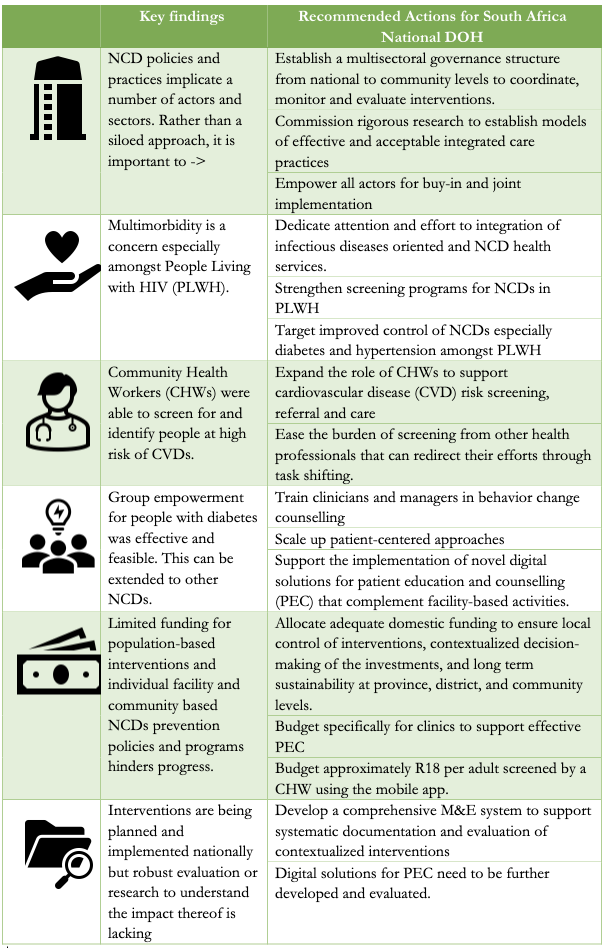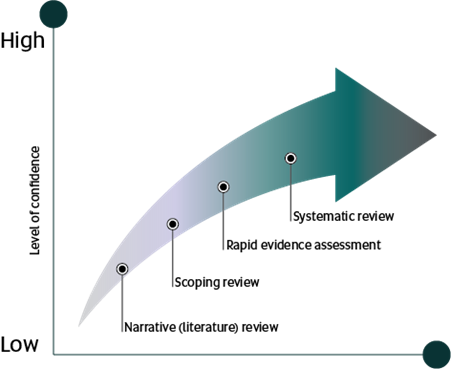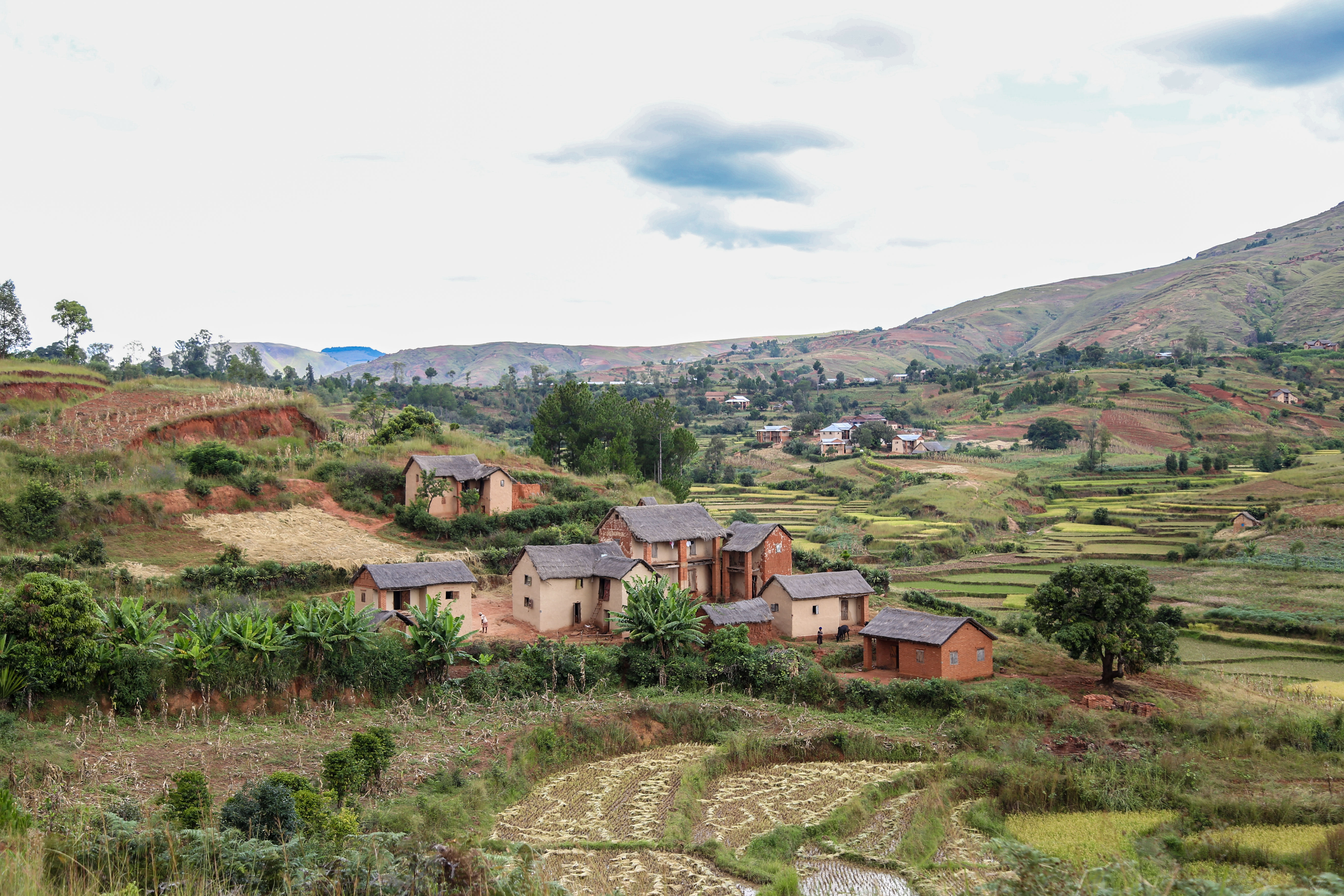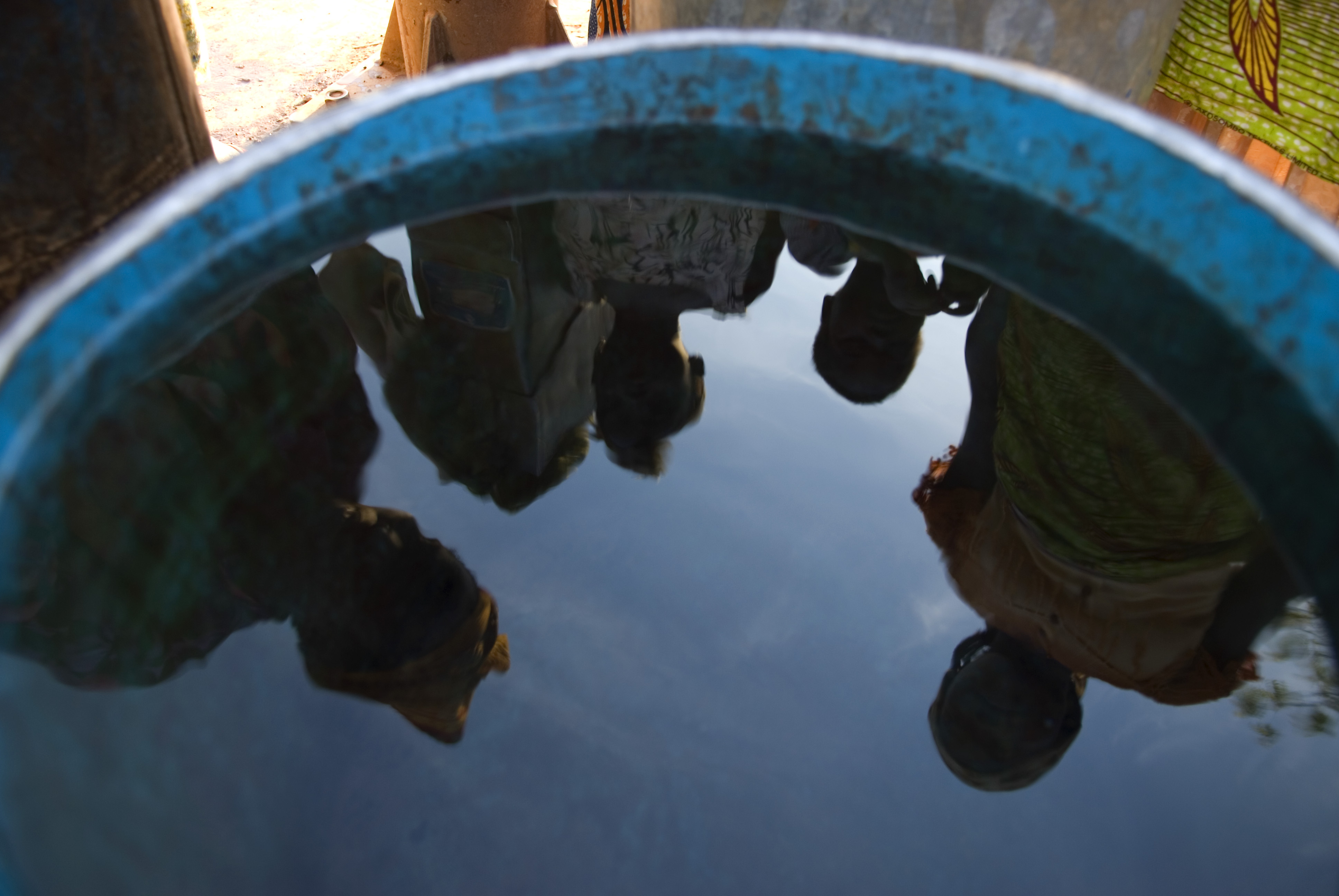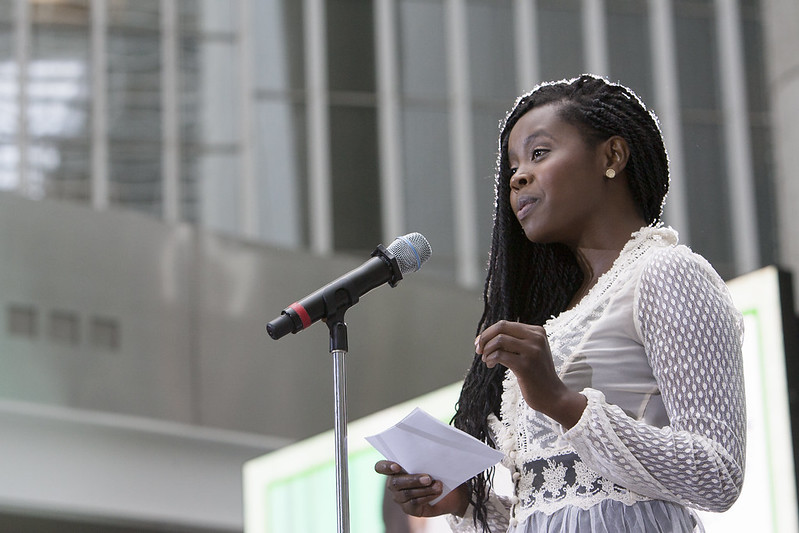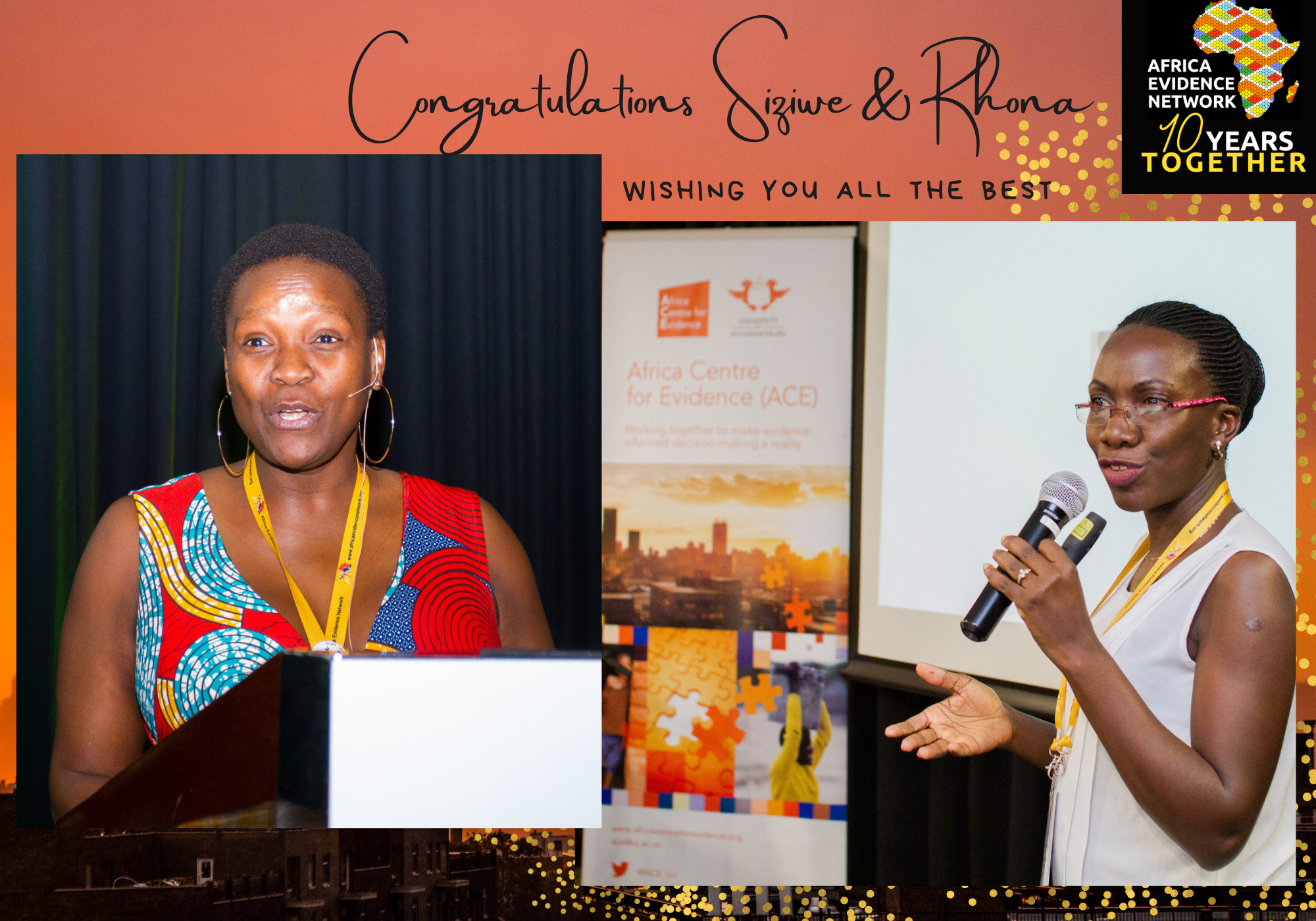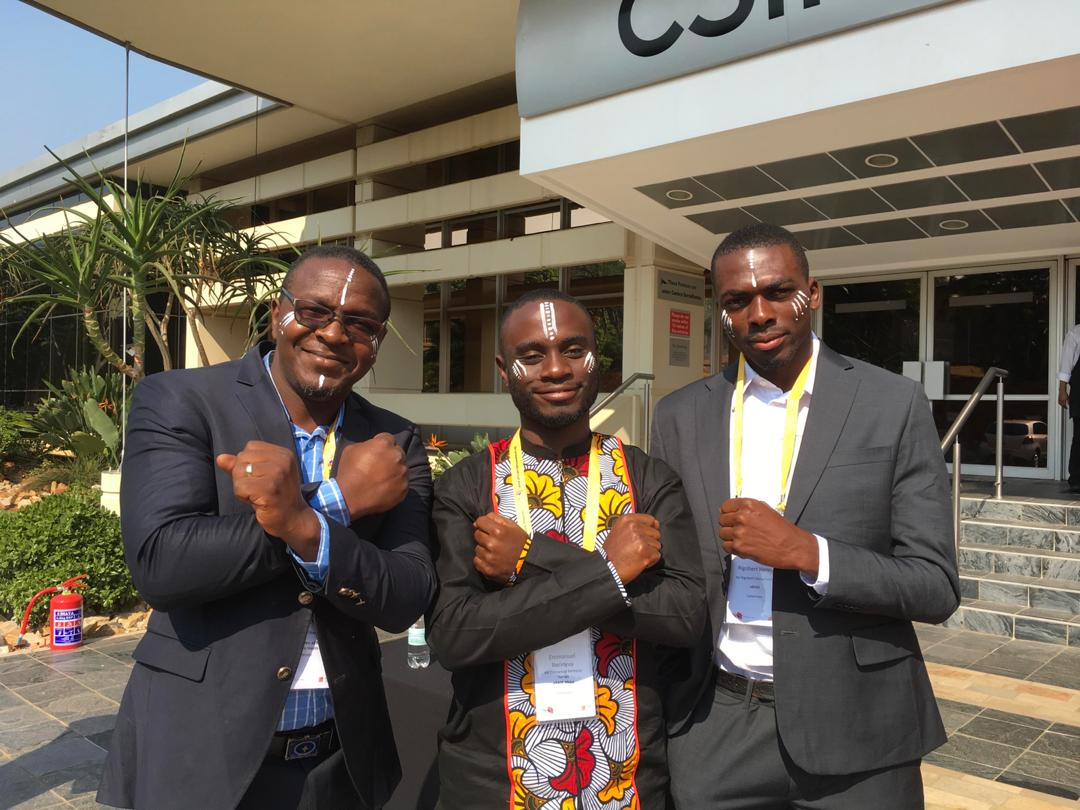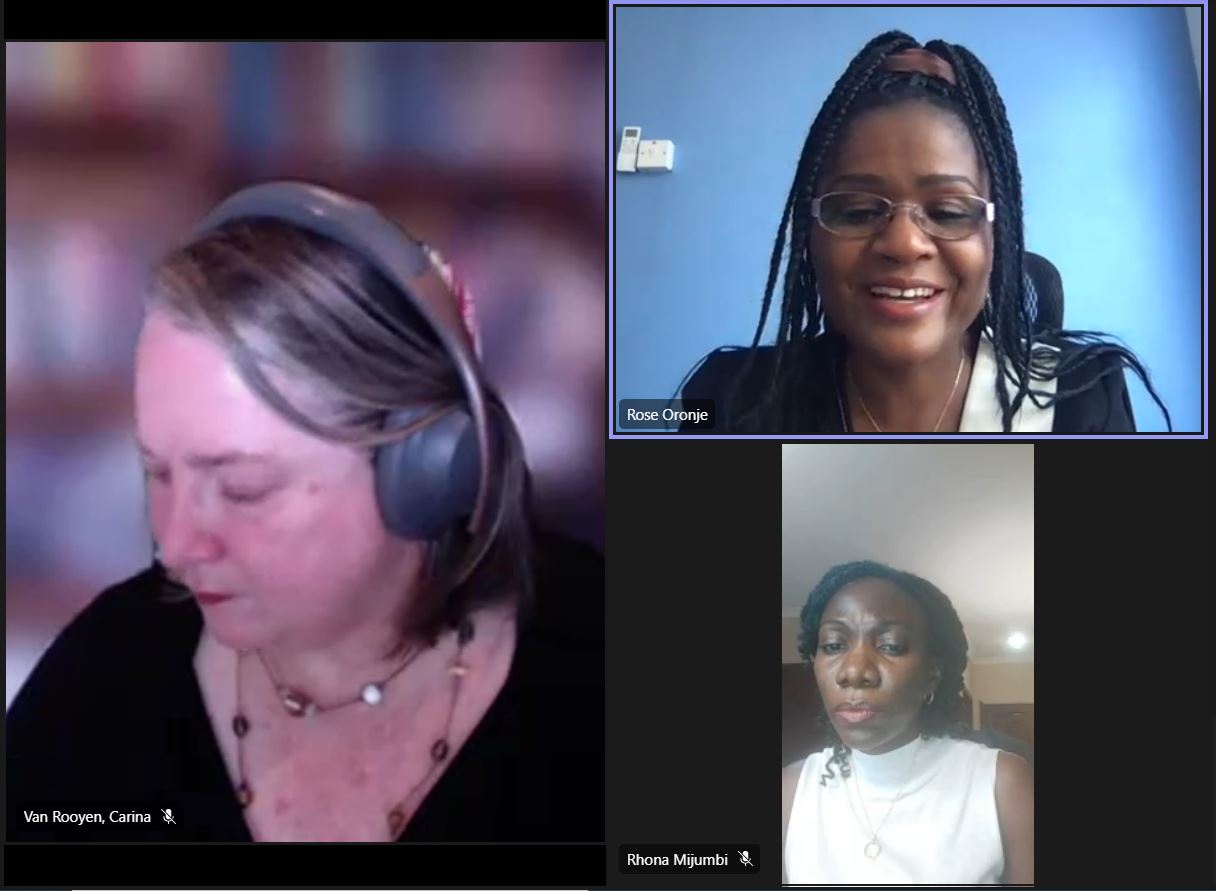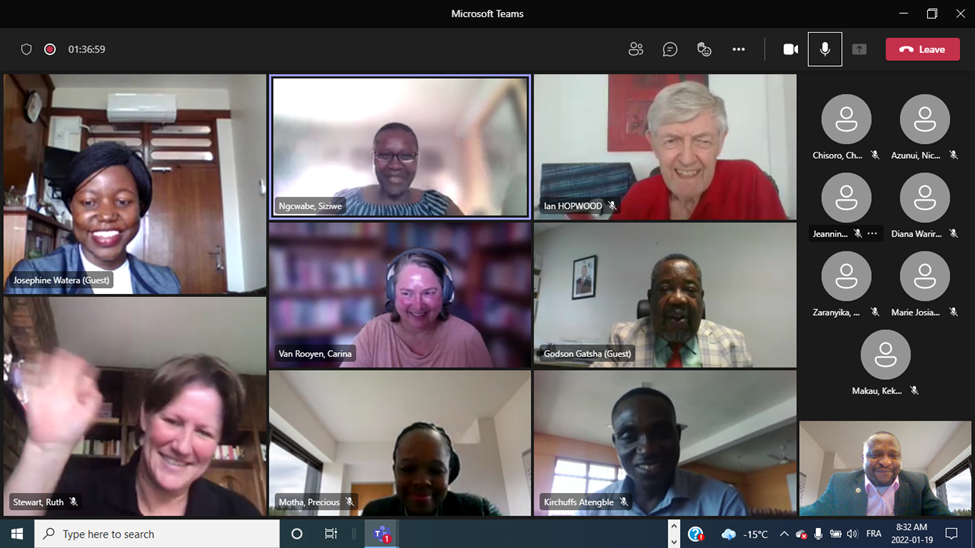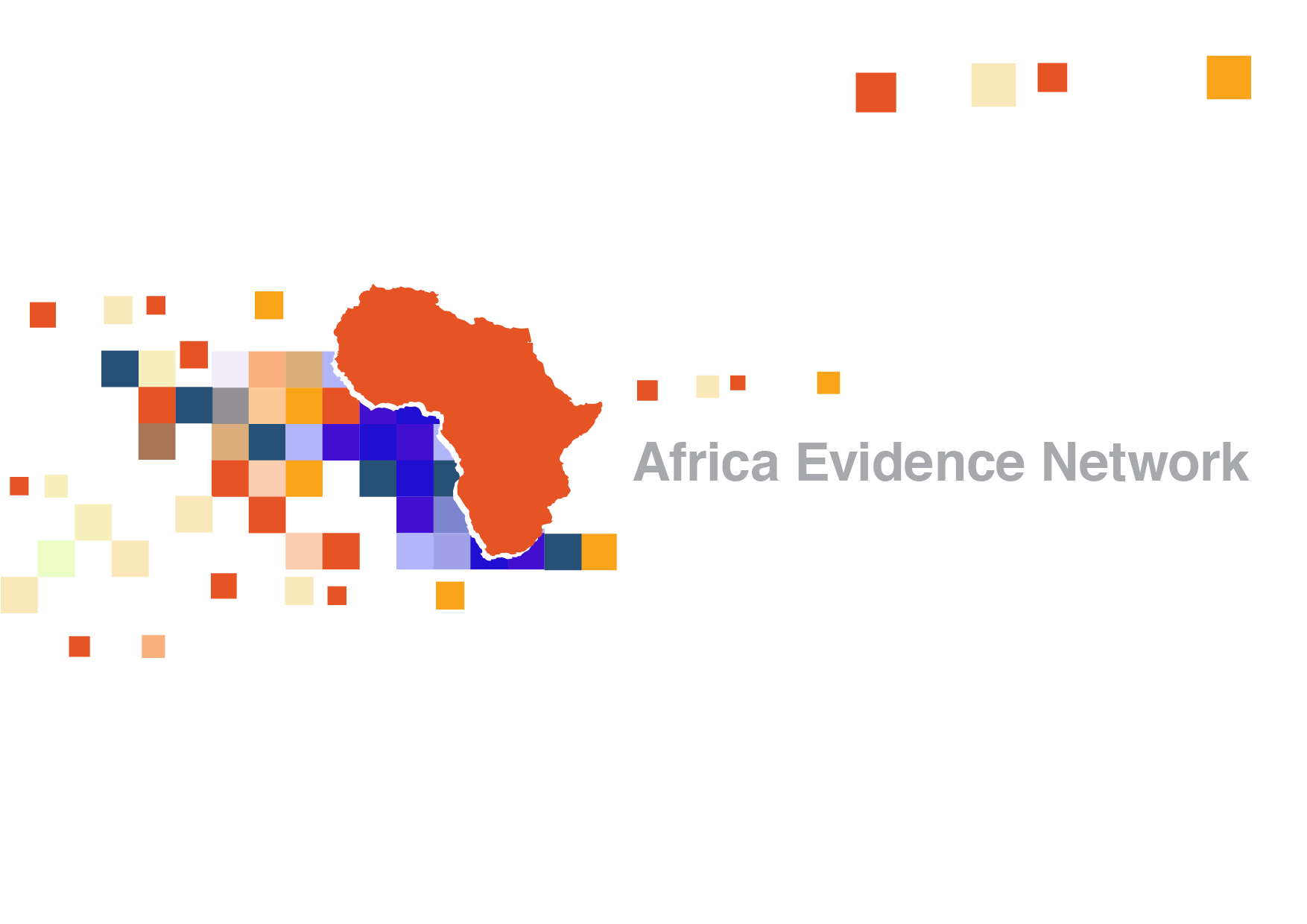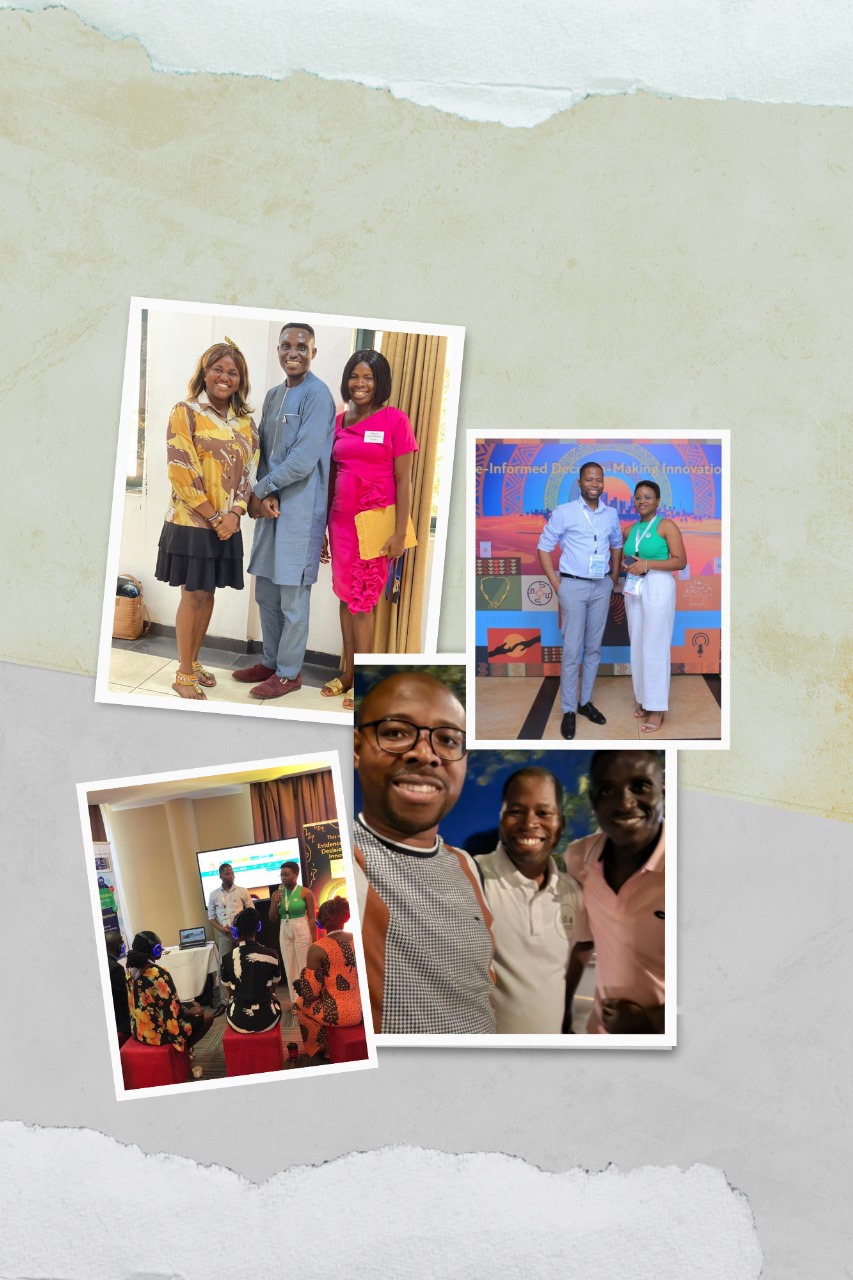
What does a decolonised mentorship programme look like? In this reflective piece, colleagues from PACKS Africa share insights into their programme that empowers young people within the African evidence ecosystem, using decolonised learning methods.
Introduction
At PACKS Africa, we have been pursuing an agenda of driving evidence-informed decision making (EIDM) capacity development through a youth-led organisational arrangement. In 2021, we initiated the Corporate Evidence Leaders Mentorship Programme (CEL-MP) as our flagship initiative to enhance the capacities of young people within the African ecosystem. Our sole mentee shared her perspectives at the end of her first year on the programme, transitioning into a corporate leadership role for the organisation.
A second cohort began in 2023, sharing their expectations in this blog article. At the end of their first year however, only 2 of the 7 intakes transitioned into the second phase, where they provide leadership on EIDM initiatives within the organisation. What could be the factor(s) driving the programme, and how decolonised is it? Different team members share their perspectives next.
Testimonies from cohort mentees
Talitha Louisa Mpando from Cohort 1
Being the first mentee of CEL-MP has offered me a unique perspective, being able to experience the vision first-hand, as well as contribute to the programme offerings. Since completion of the foundational mentorship year, I have also had a chance to sit on the other side of the table, witnessing the current mentees (Bruce and Margaret) refine their skills in the exciting world of evidence with zeal. In my role as Executive Director, I am even more grateful to the opportunity the programme afforded me. What would have been a very intimidating endeavour to take on was made easier as I found myself equipped with a set of tools under my belt. I am most excited that this mentorship programme allows skills to be passed over from one cohort to the next building the next generation of evidence leaders.
Bruce Lesiba Chidi from Cohort 2
The ground-breaking CEL-MP has capacitated me beyond all my expectations. The wealth of knowledge that has been transferred by fellow African youth EIDM leaders has left me both inspired and filled with veneration. The PACKS Africa team has led us through the complexities surrounding leadership, organisational understanding, policy-making and EIDM seamlessly and fastidiously.
Cohort 2 began by introducing us to the definition of an organisation and building our understanding of leadership and management within organisations. The discernment of these themes continued as the programme exposed us to evidence use within our respective contexts. Then we dived deep into policy, the processes in which policies are made in our local contexts, and identified opportunities for evidence use in our policy-making processes.
As these learnings were ongoing, we were granted multiple opportunities to work on authentic scenarios. These tasks were not merely for assessment purposes but, true to its nature as a mentorship programme, we were presented with room to put to practise what we learned. This unique approach to mentoring has culminated in the milestone of reaching the second phase of the programme. Such an achievement is not only a testament to efforts and care of the PACKS Africa team, but illustrates the African philosophy that “if you wish to go fast, go alone, but if you want to go far, go together.”
Margaret Impraim from Cohort 2
Being a part of this mentorship program exposed me to advanced learnings and practicalities in EIDM, policy making and organisational dynamics as well as ideation and problem solving through the theory of change.
Personally, these are areas I would not have had direct access to since my field of operations is in environmental sustainability and climate change. As a climate advocate, it was important to understand the technicalities in decision making and organisational dynamics. Being taken through this program built by PACKS Africa.
Reflections from programme management
Through efforts of Agnes Insor-Brown, management instituted mechanisms to coordinate smooth running of the programme. She specifically serves as main contact for all stakeholders, supporting recruitment and selection of mentees, troubleshooting relationships, monitoring the programme, supporting periodic evaluations, and driving any improvements.
Following her role as Executive Director, Talitha provides oversight over all activities of PACKS Africa, including those of CEL-MP. In essence, Agnes now consults with Talitha for any directions. Talitha equally took on mentorship responsibilities, giving back to the programme the competencies she had benefited from. She joined Kirchuffs and Winfred Gborgbortsi as mentors for cohort 2, following the paths of Carina van Rooyen, a previous mentor.
Mentees have confidently demonstrated anticipated competencies through weekly assignments and their review in learning sessions, as well as producing deliverables such as communication pieces, analytical works and concept notes. They have represented the organisation in several high profile professional gatherings, including the regional Evidence 2023 conference in Uganda and a recent Climate Change and Health Summit in Ghana.
A major challenge has however been around the discipline of active participation in learning sessions and assignments, technical glitches associated with remote convening (electricity and internet), and balancing learning with official work responsibilities.
Marvis Bih, our new MEL and Knowledge Management lead, perceives an outstanding interim programme accomplishment on the quality of mentees produced. She anticipates an eventual growth in their numbers, which will be needed to address the EIDM needs of African governments in the 21st Century.
Expectations for future cohorts
From our reflections, we have a common view that the decolonised learning scheme requires discipline from mentees, flexibility from mentors and circumspection from PACKS Africa. Conscious of their own contributions to their learning, mentees will need to demonstrate commitment through dedication to basic programme expectations, including participation in weekly learning sessions and assignments.
The flexibility of mentors safeguard the ideals of decolonised learning, accommodating the uniqueness of each learner and their learning environments. Where assignments need more time for completion, for example, this will need to be negotiated for maximum outcomes of each learning session.
As an organisation, PACKS Africa is to superintend over these structures for remote learning, ensuring that the ideals of decolonised learning are sustained, and that no one is left behind. It is for this reason that the evaluation of learning outcomes and the processes that produce them is paramount to the programme.
About the authors
Bruce Lesiba Chidi has extensive background in education and recently expanded his area of expertise to the research field. He holds a Bachelor of Education B. Ed (FET General) degree from the University of Pretoria and is currently in his second year of Law (LLB) with the University of South Africa (UNISA). Added to these qualifications, he has been involved in several short courses and workshops including: the YALI Regional Leadership Centre Southern Africa (Cohort 10), KCIC business programme which was run in conjunction with the British Council, the Thebe Foundation mentoring programme and the SAICA-ED programme. He was a co-founder of Equality for All, and he is the former chairperson of BizSchool. He holds directorship at CEA as well as GoGetters Brand and is co-founder of both enterprises. Bruce is reachable on the following social media platforms: LinkedIn, Facebook, Instagram, Twitter.
Margaret Impraim works on climate justice, climate governance, and gender equality within the youth climate movement in sub-Saharan Africa. Working at the grassroots and volunteering in youth-led initiatives, she is experienced with the biases of youth due to climate vulnerability. Currently, she is the Assistant Global Coordinator, Youth Climate Councils Global Alliance, for the Green Africa Youth Organisation, where she contributes to the meaningful inclusion of youth in climate decision-making and leverages her experience in youth-government partnerships to guide youth movements in other countries that seek to influence climate policy and climate justice. Furthermore, she serves as a committee member for the National Youth Action Group on Climate Change. She was a party delegate for the 26th and 27th Conference of Parties in Glasgow, the Country Contact Point for COY 17 and the Conference Coordinator for the Local Conference of Youth on Climate Change in Ghana, a precursor event to COY 17 and COP 27, that sought to build youth capacity and draw out youth demands into a national youth climate statement.
Talitha Mpando is Executive Director of PACKS Africa, a youth-led, pan-African capacity development think tank for EIDM. As a public health professional with experience working in a research consortium, she most recently worked with the Kamuzu University of Health Sciences (Malawi), specifically the Collaboration for Evidence Based Healthcare and Public Health Project (CEBHA+) Project. In her role as an Integrated Knowledge Translation Research Fellow, she worked for 3 years to bridge the gap between evidence and policy/practice with respect to Non-Communicable Diseases (NCDs). She was exposed to the different mechanisms used in the EIDM Ecosystem and developed professional relationships with a range of stakeholders. Her research includes global health, upstream determinants of health and EIDM in the Global South. Talitha was trained in civic Leadership at the Young African Leadership Initiative (YALI) Southern African Leadership Centre in Midrand, South Africa. She was also the sole mentee of PACKS Africa’s CEL-MP in its first cohort. Talitha looks forward to using her experiences and skills from these capacity building activities to advocate for EIDM in Malawi and beyond. You can contact her on LinkedIn and/or on Twitter.
Agnes Insor-Brown is currently the Office Manager at PACKS Africa; a youth-led Pan-African capacity development think tank. Being a relatively small organisation, Agnes is involved with different business support roles, including office administration, human relations, accounts, etc. She holds a First Degree in Business Administration from the University of Professional Studies, Accra- Ghana, and manages an online skin care business (Brown_skinz).
Marvis Bih holds a PhD in Development Studies from the University of Johannesburg (UJ), where she investigated the use of monitoring and evaluation data in a gender-based violence NPO. She is a researcher with a multidisciplinary research and evaluation background across several fields including women and development, education, childcare and youth development, and women and youth empowerment. She has over 18 years of experience as a researcher, monitoring and evaluation consultant, development consultant and trainer, and child and women abuse counsellor. Marvis is a recipient of the 2017 Golden Key International Honours Society Award.
Kirchuffs Atengble is former Executive Director of PACKS Africa, a youth-led Pan-African think tank operating to improve uptake of research and other forms of evidence in policy processes and practice. Individual and institutional-level capacity development has been a core focus in his line of work, particularly through diagnostics of information systems and knowledge management. He has over 10 years of experience within the field of evidence-to-policy, playing various roles at local, national and regional levels of collaboration to enhance opportunities for interventions that ultimately target human development. While providing strategic leadership to PACKS, he also leads on specific initiatives, aiming to nurture a really influential organisation for evidence-informed policies. His strategic position within the EIDM fraternity has earned him various appointments, including Research Associate at the University of Johannesburg, Visiting faculty at the University of Southampton, and Advisory Group member of the Africa Evidence Network (AEN). He may be reached via email at k.atengble@packs-africa.org. Get in touch with him on Twitter @K_Atengble.
Acknowledgements: The authors are solely responsible for the content of this article, including all errors or omissions; acknowledgements do not imply endorsement of the content.
Disclaimer: The views expressed in published blog posts, as well as any errors or omissions, are the sole responsibility of the authors and do not represent the views of the Africa Evidence Network, its secretariat, advisory or reference groups, or its funders; nor does it imply endorsement by the afore-mentioned parties.
